Media
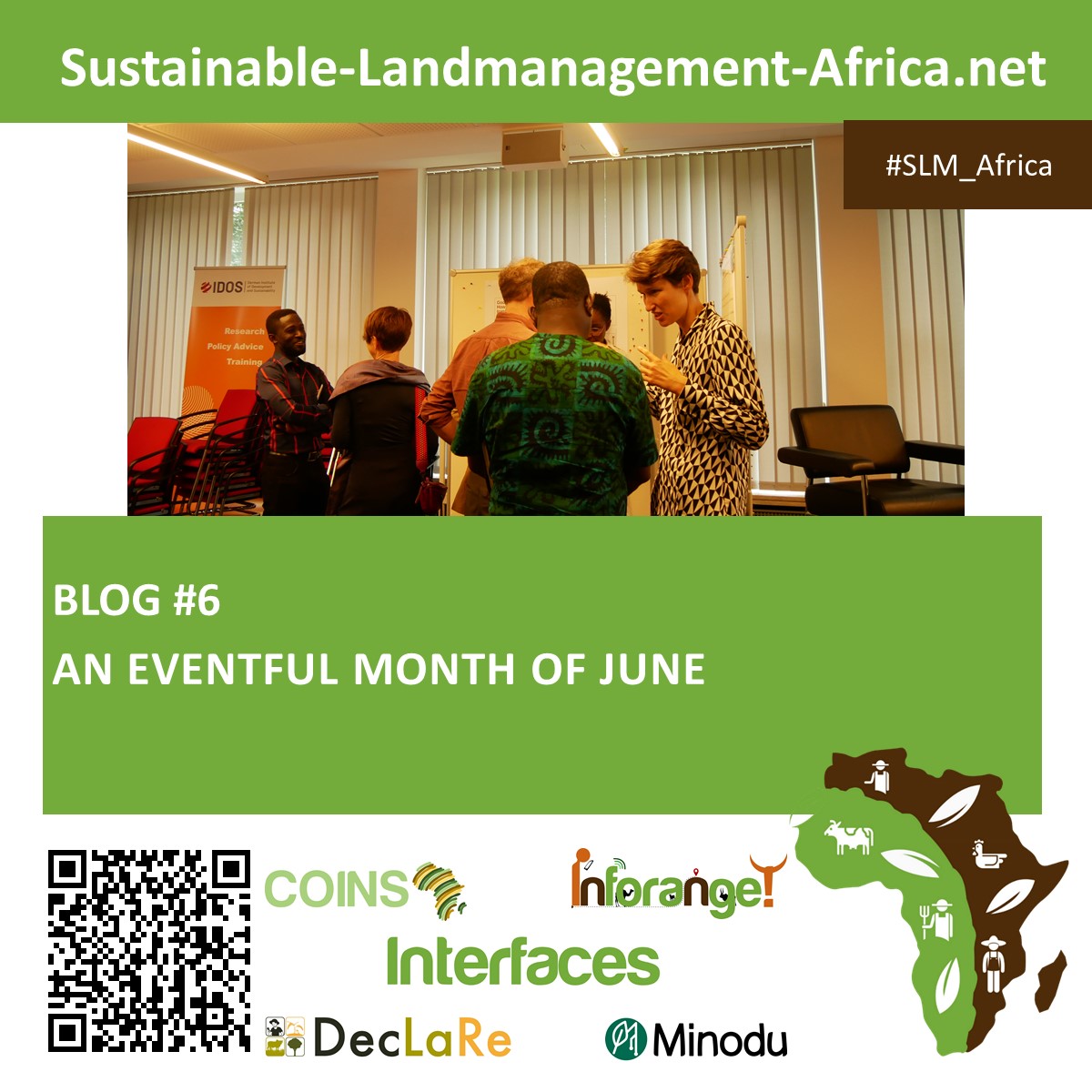
Blog #6 - An Eventful Month of June
June 2024 has been particularly eventful, as members of the INTERFACES project hosted many insightful events, but also participated in several key conferences dedicated to addressing some of the most pressing global issues.
Learn more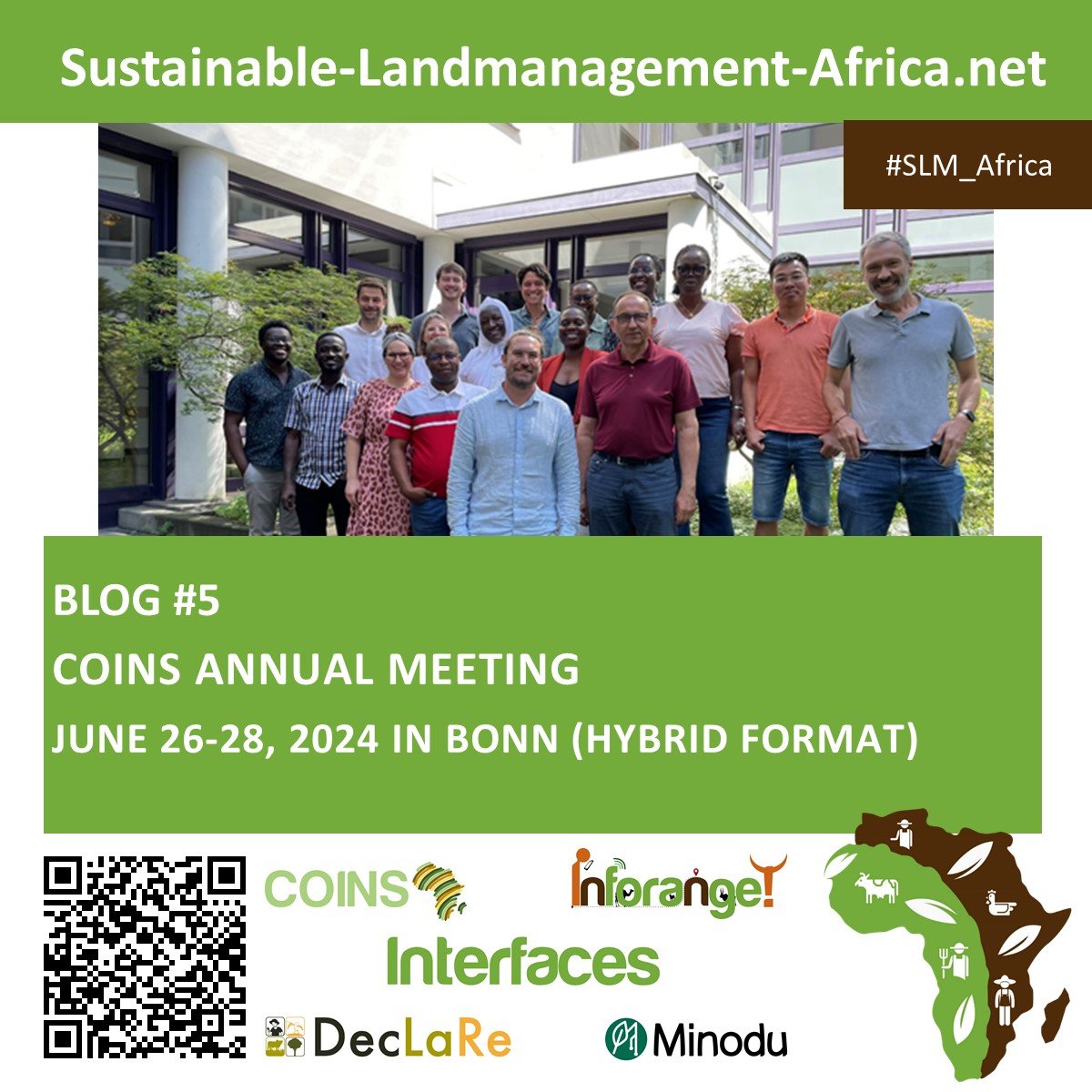
Blog #5 - Annual Meeting of the COINS Project
The COINS project meeting, held in Bonn from June 26 to 28, 2024, was conducted in a hybrid format with approximately 20 participants attending in person and an additional 15-20 participants joining online from Senegal, Ghana, and Kenya. The purpose of the meeting was to provide project updates, deliver presentations, and discuss the project’s objectives.
Learn more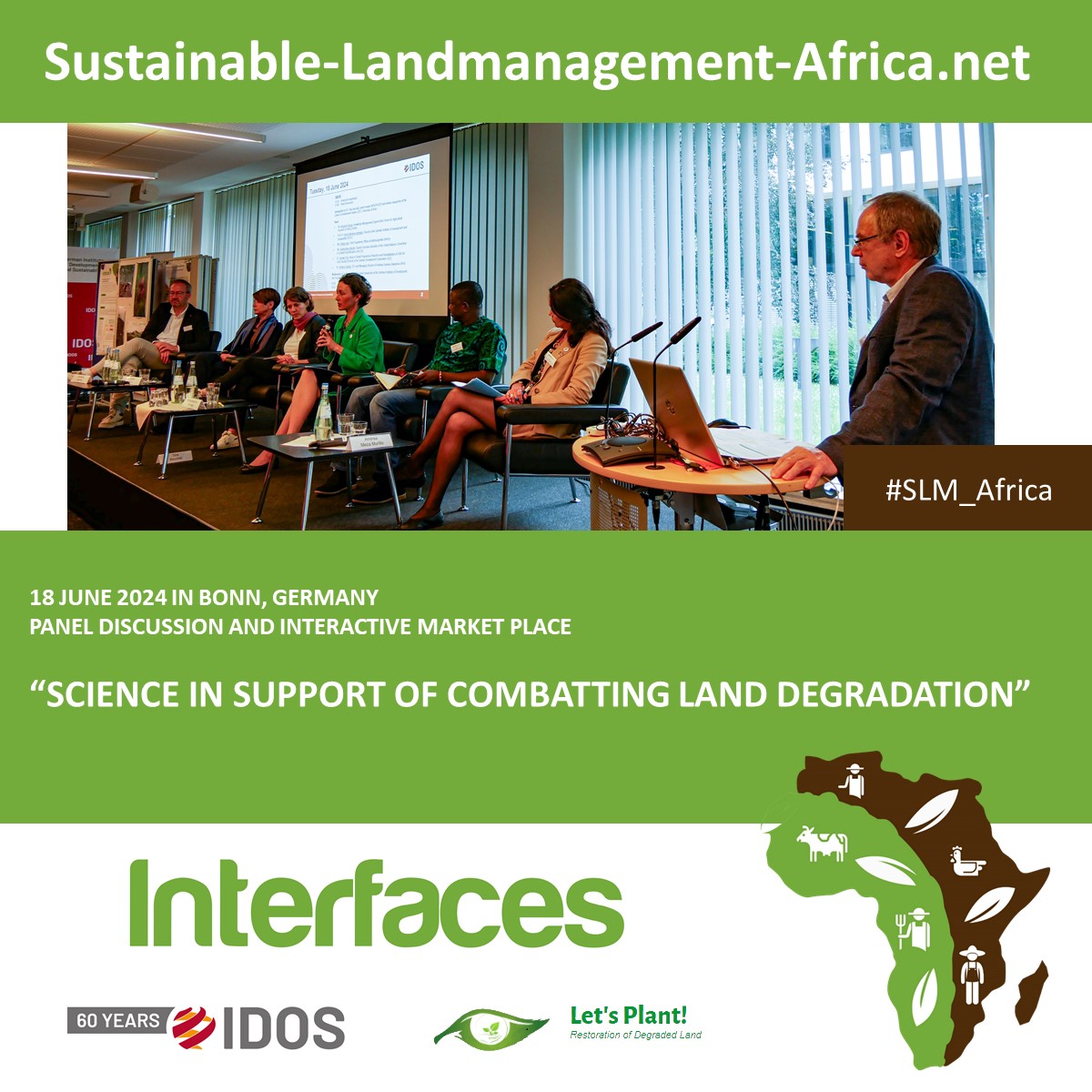
Special Issue: Science in Support of Combatting Land Degradation
In celebration of the 30th anniversary of the UN Convention to Combat Desertification and in recognition of the World Desertification and Drought Day, the INTERFACES team at IDOS and the NGO “Let’s Plant!” co-organised a panel discussion and interactive market place on 18 June 2024. This evening event gave space for organisations and people engaged in combating desertification, soil degradation, and drought to come together and exchange ideas, share their experiences, and build connections.
Learn more
Blog #4 - Institutionalising collaboration through InfoRange Community Committees in Namibia and Kenya
Mobile pastoral livestock production is a knowledge and information intensive production system integrated within overall rangeland management. In InfoRange, we seek to enhance information access to support pastoralists in their management decisions and practices concerning grazing and animal health, by co-developing digital tools.
Learn more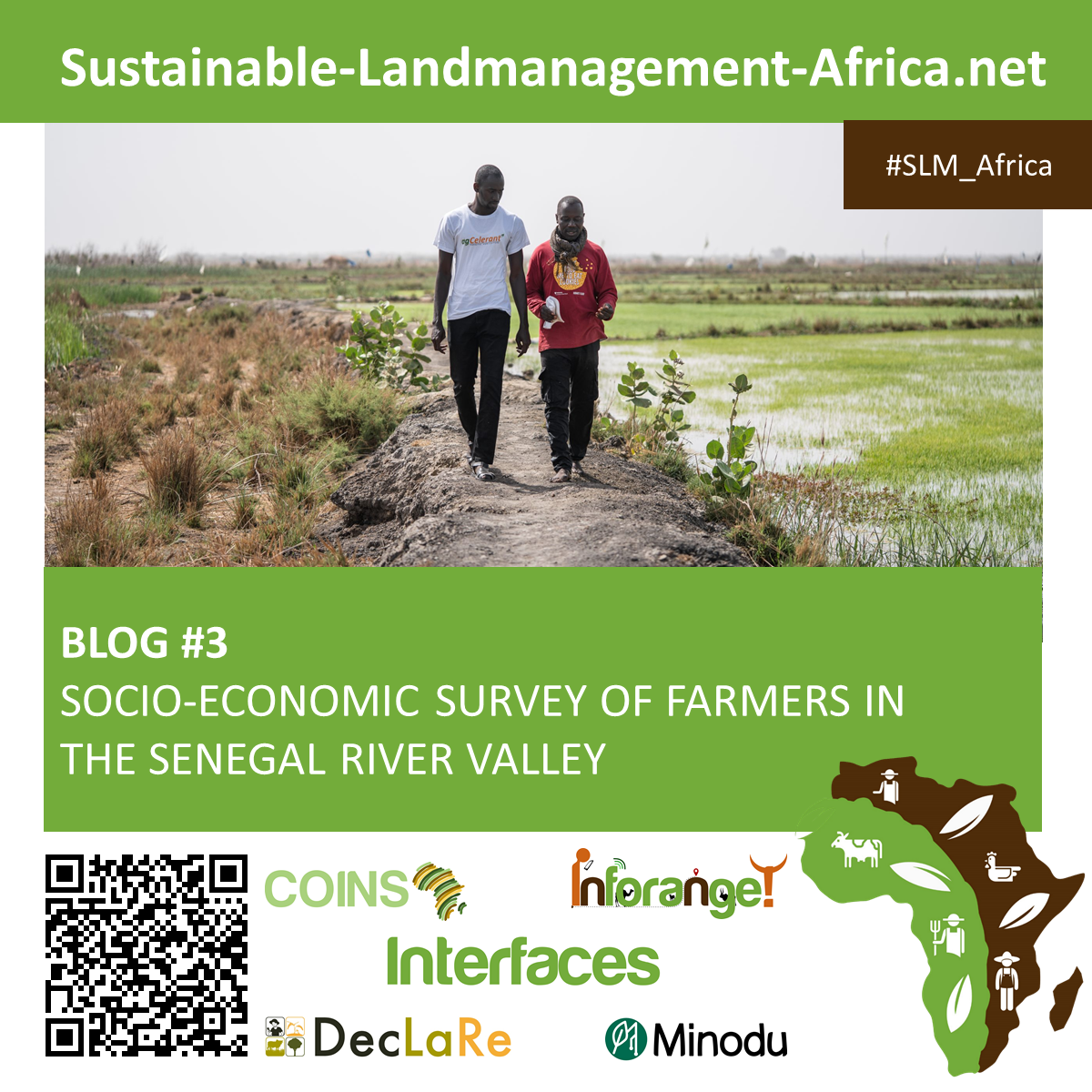
Blog #3 - Socio-economic Survey of Farmers in the Senegal River Valley
The objective of the COINS project is to promote sustainable intensification practices in both Senegal and Ghana. Initial ground activities involved a socio-economic survey in the Podor and Dagana departments of the Senegal River Valley (SRV), to assess the farmers’ perceptions of agricultural innovations and knowledge of their economic and social conditions.
Learn more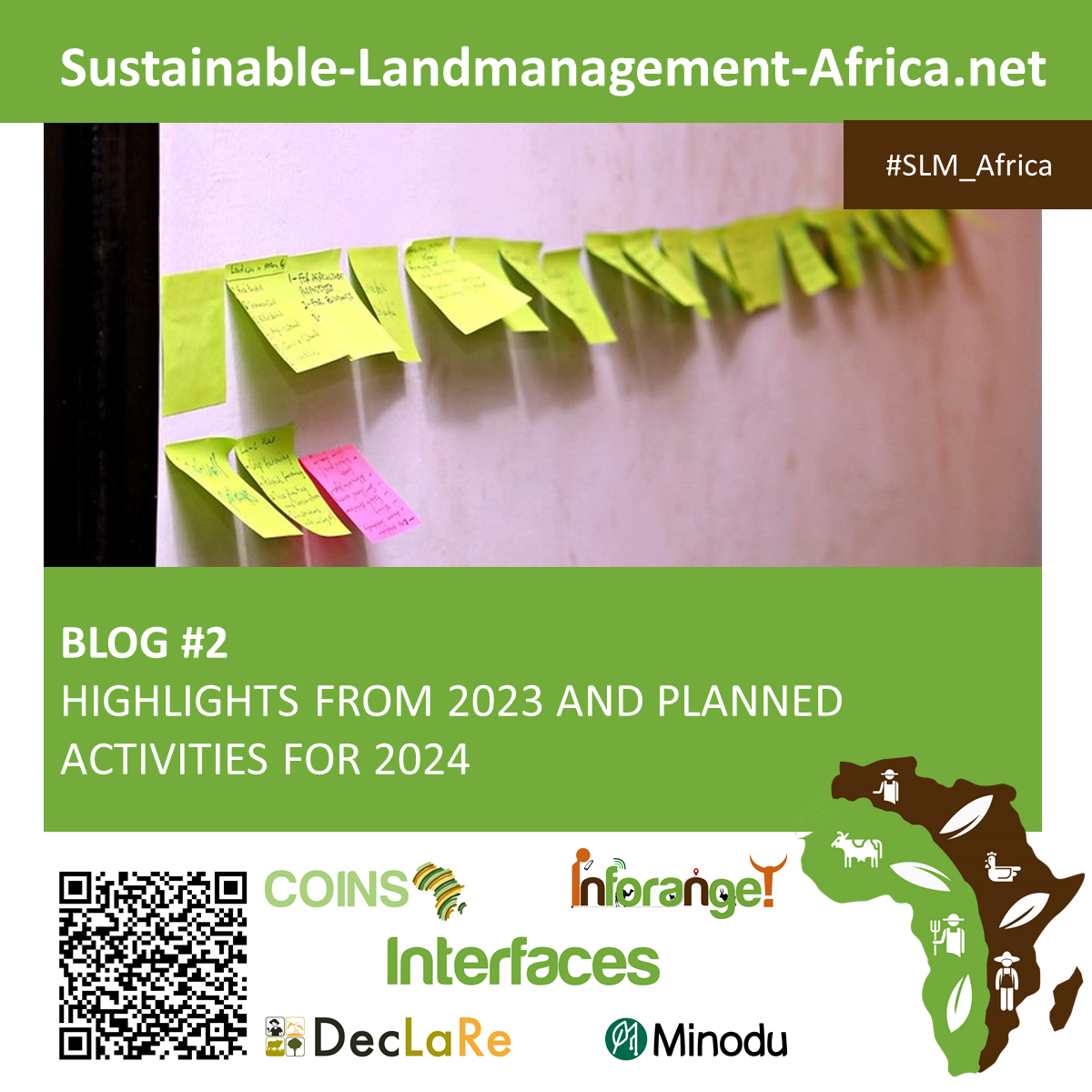
Blog #2 - Highlights from 2023 and Planned Activities for 2024
This first blog of 2024 will introduce the projects and summarise a selection of highlights from the past year along with some examples of planned activities for the next year.
Learn more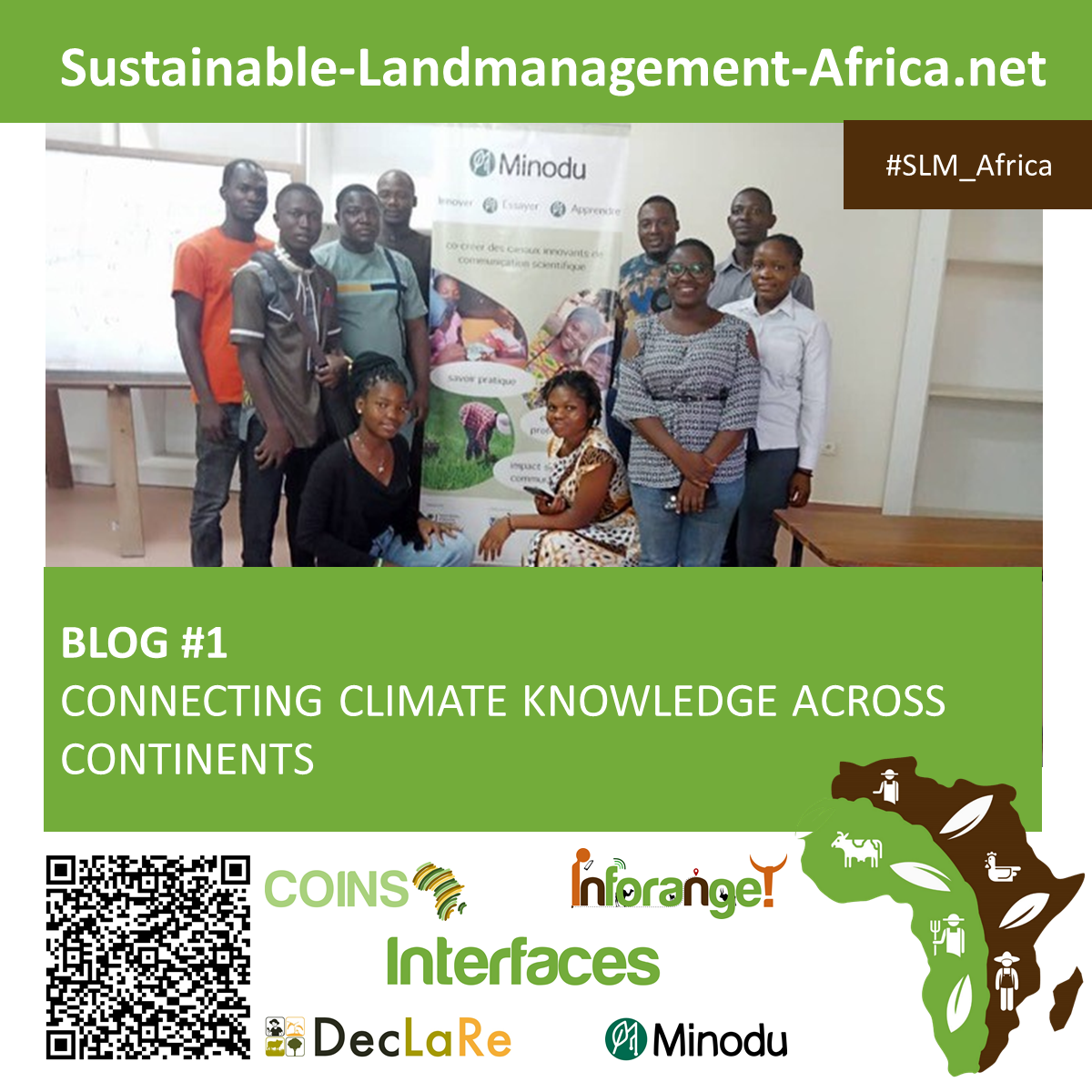
Blog #1 - Connecting Climate Knowledge Across Continents
As part of the Minodu project a hybrid collaborative university course was held simultaneously at the University of Kara, Togo and the University of the Arts in Berlin, Germany over the winter semester 2023/24.
Learn more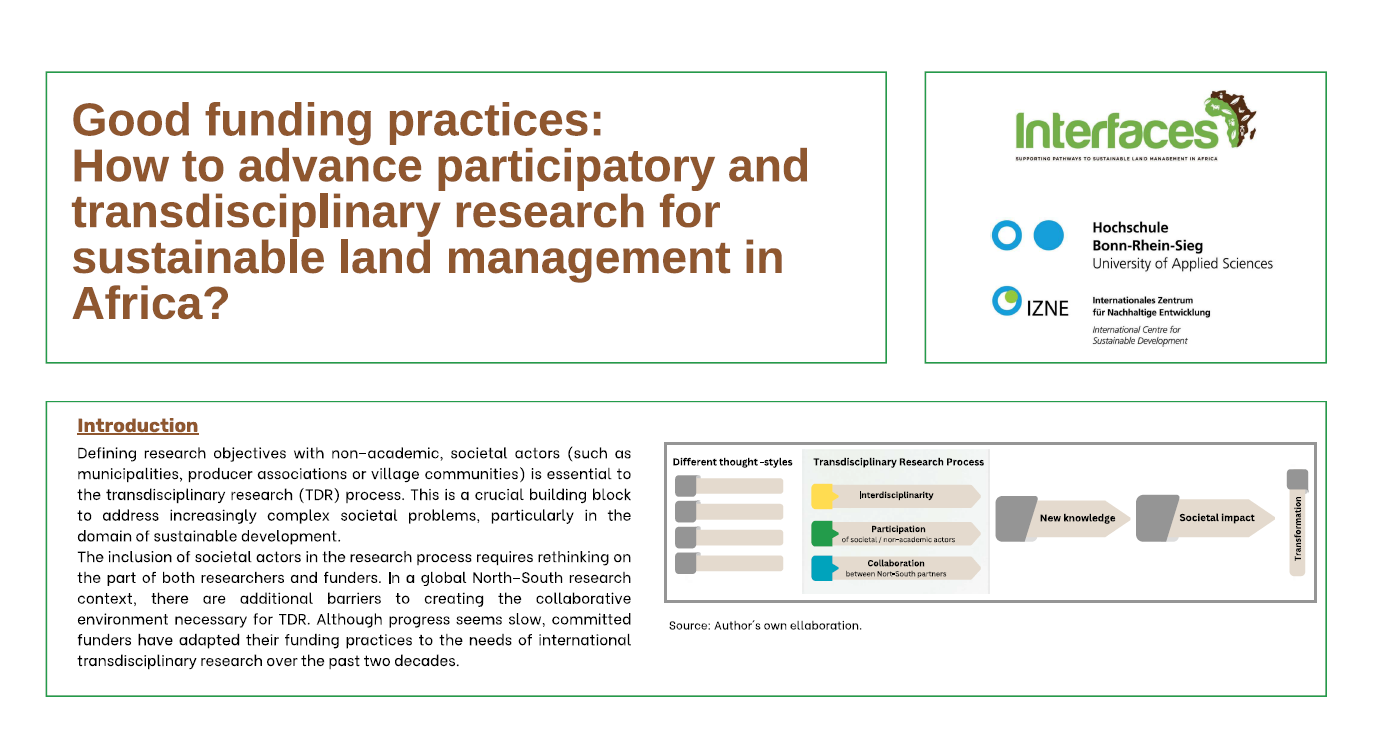
Good Funding Practices
Defining research objectives with non-academic and societal actors is essential to the transdisciplinary research process. This is a crucial building block to address increasingly complex societal problems, particularly in the domain of sustainable development
Learn more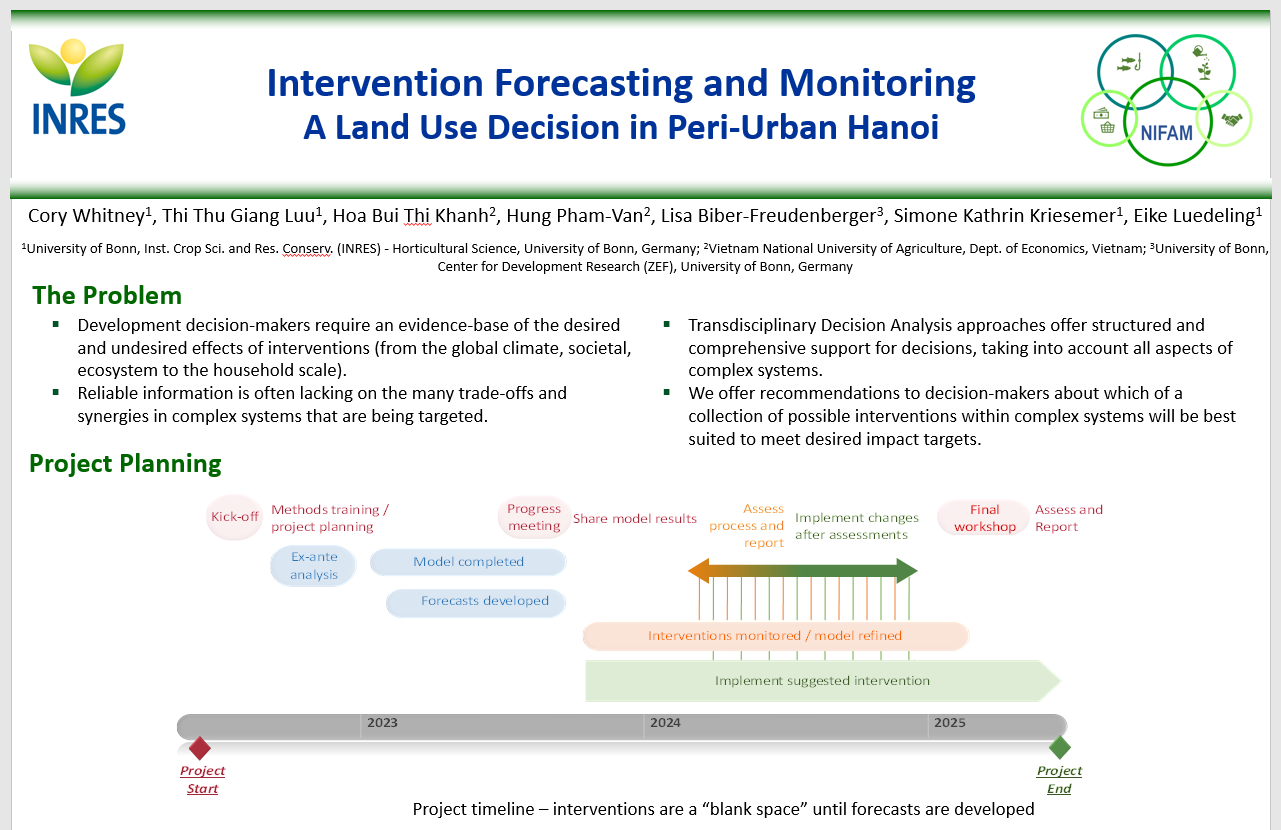
Intervention Forecasting and Monitoring A Land Use Decision in Peri-Urban Hanoi
By co-developing a scientific framework, the project aims to forecast, implement, and monitor effective nutrition interventions in Vietnam and Myanmar.
Learn more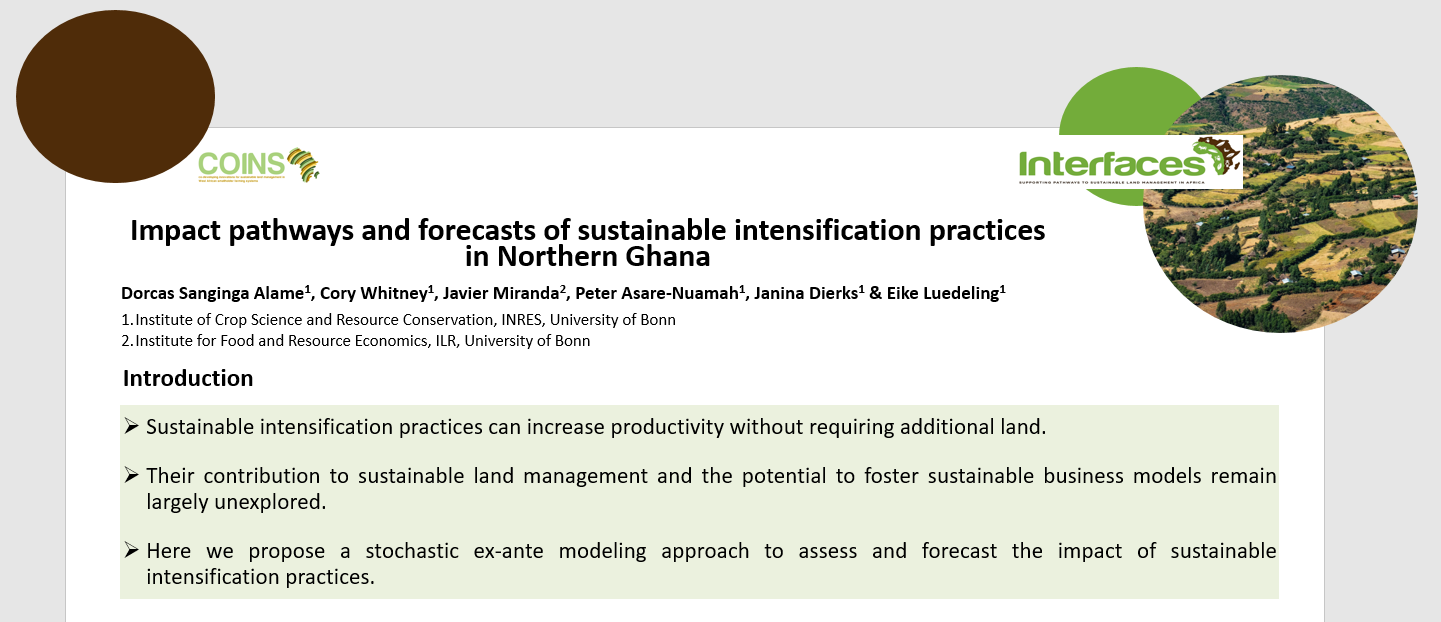
Impact pathways and forecasts of sustainable intensification practices
Impact pathway of ISFM as a sustainable intensification practice that can improve soil fertility status and increase productivity and farmers’ profits on existing land.
Learn more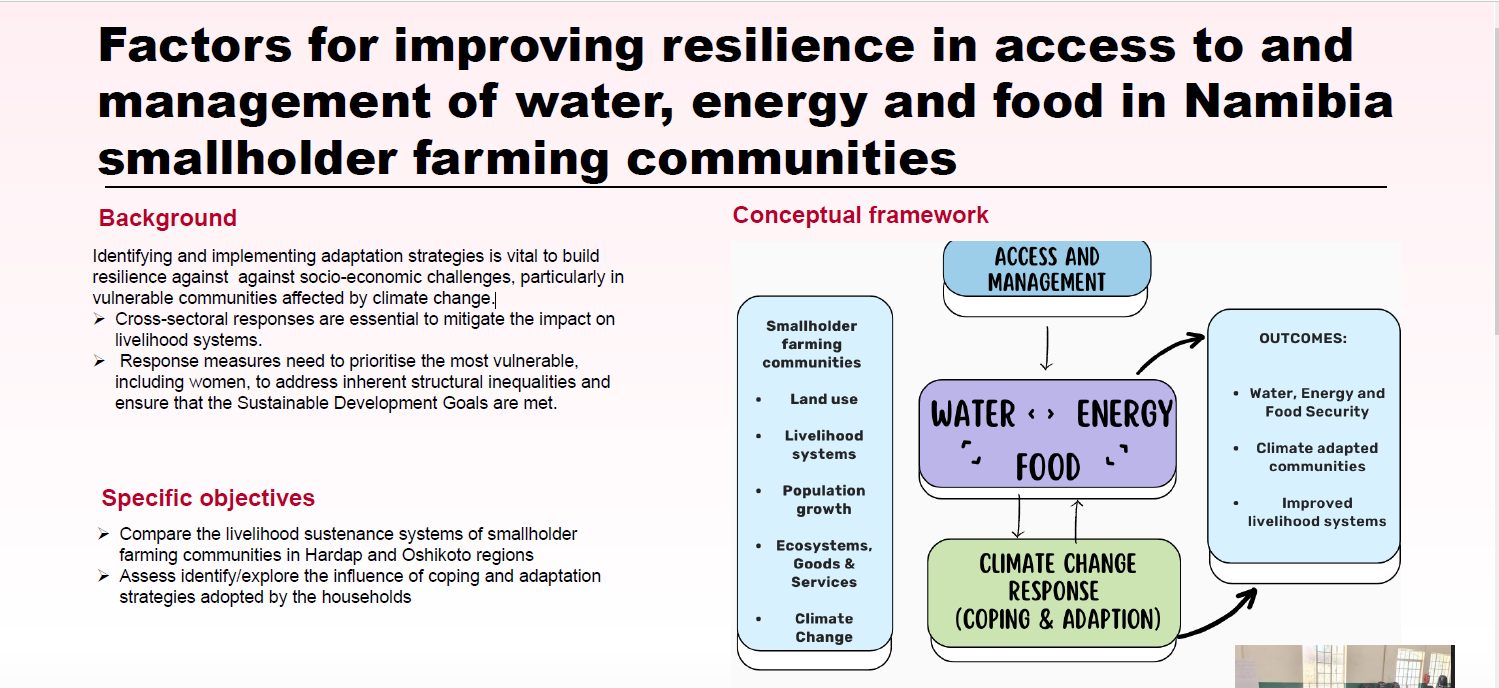
Factors for improving resilience in access to and management of water, energy and food
Identifying and implementing adaptation strategies is vital to build resilience against against socio-economic challenges, particularly in vulnerable communities affected by climate change.
Learn more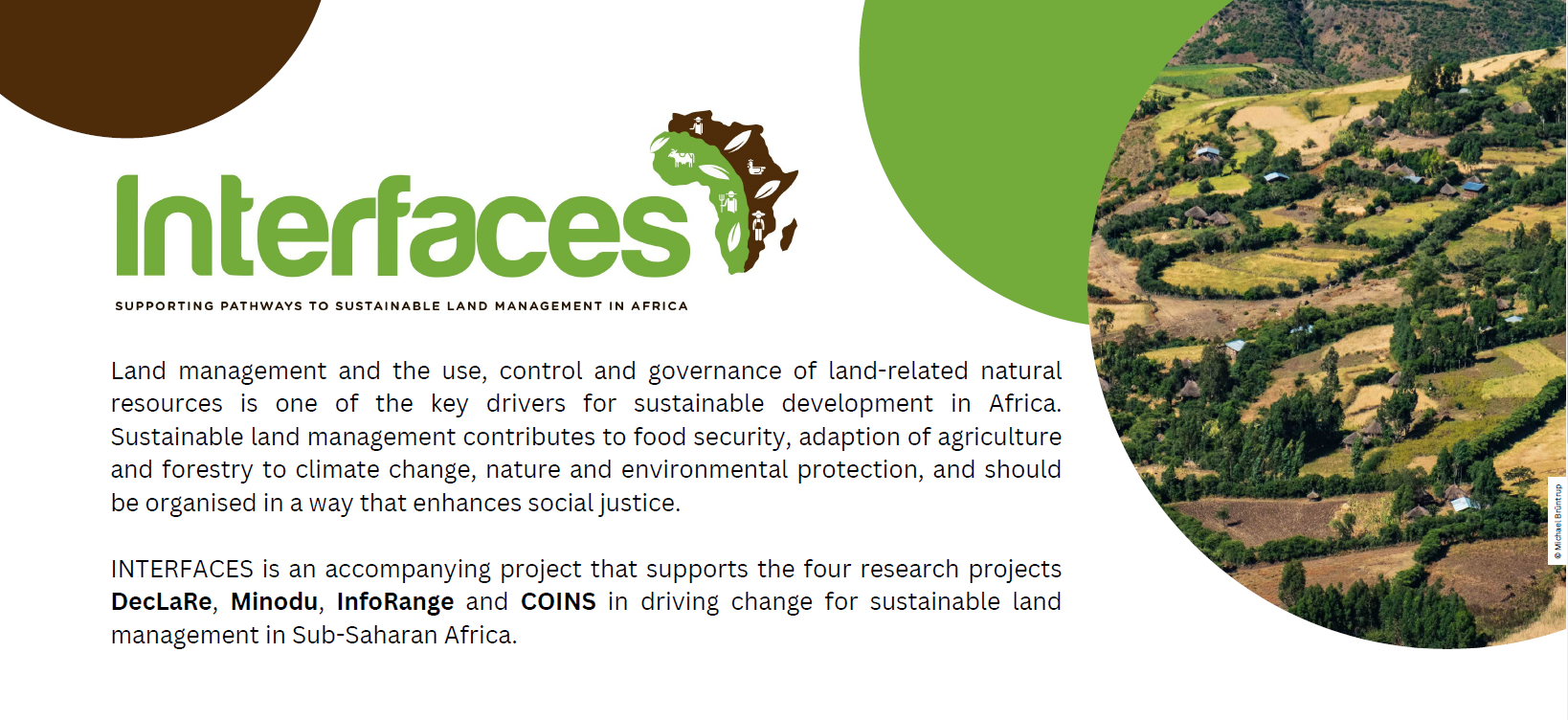
Supporting Pathways to Sustainable Land Management in Africa
INTERFACES is an accompanying project that supports the four research projects DecLaRe, Minodu, InfoRange and COINS in driving change for sustainable land management in Sub-Saharan Africa.
Learn more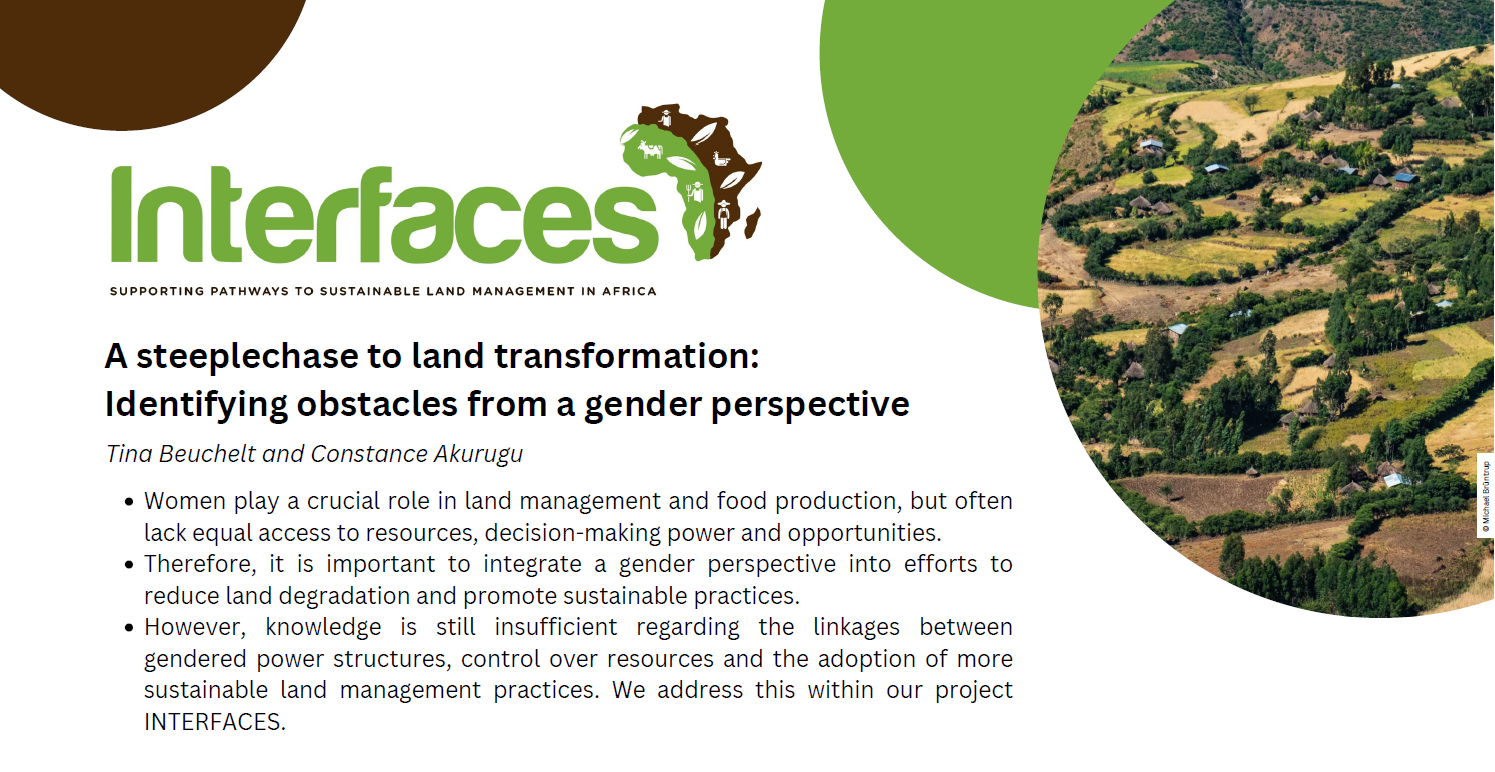
A steeplechase to land transformation
Our research in Northern Ghana is based around three hypotheses, aiming to identify feasible solutions for change.
Learn more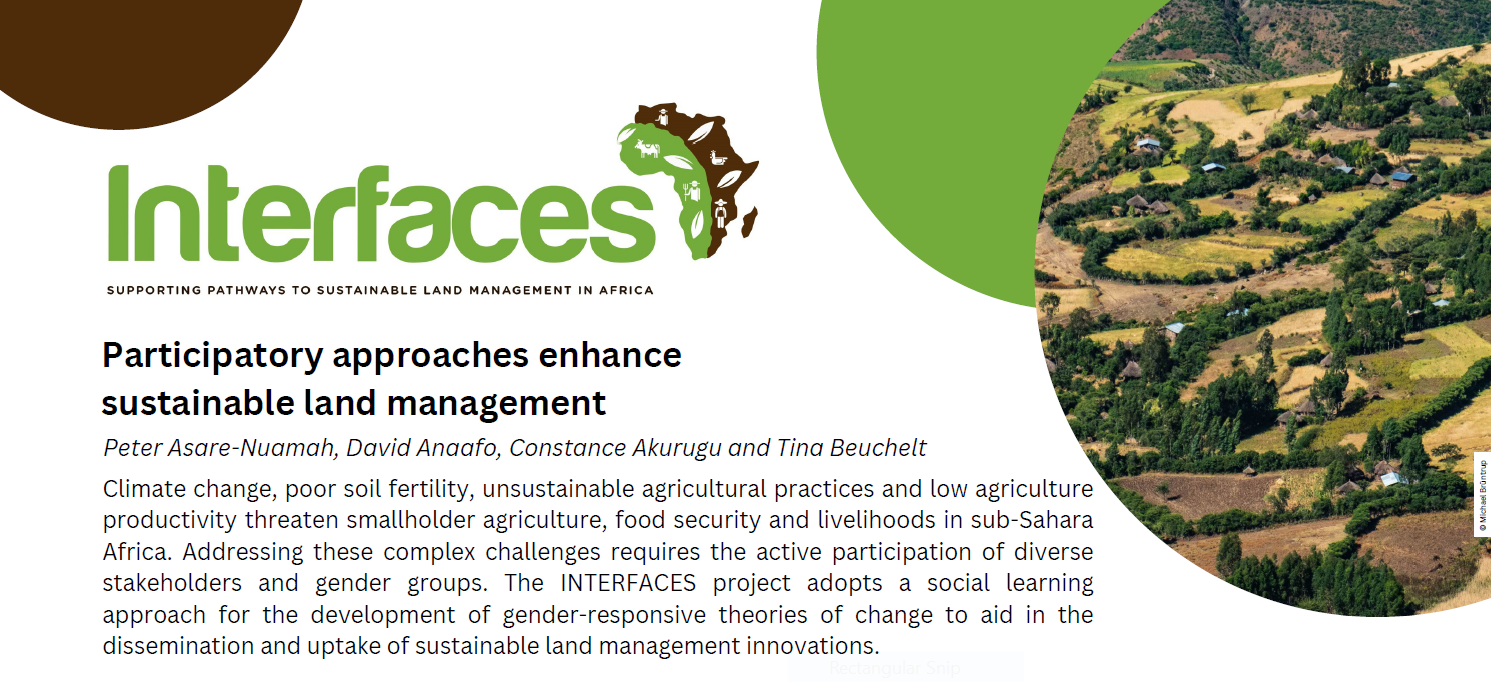
Participatory Approaches Enhance Sustainable Land Management
The INTERFACES project adopts a social learning approach for the development of gender-responsive theories of change to aid in the dissemination and uptake of sustainable land management innovations.
Learn more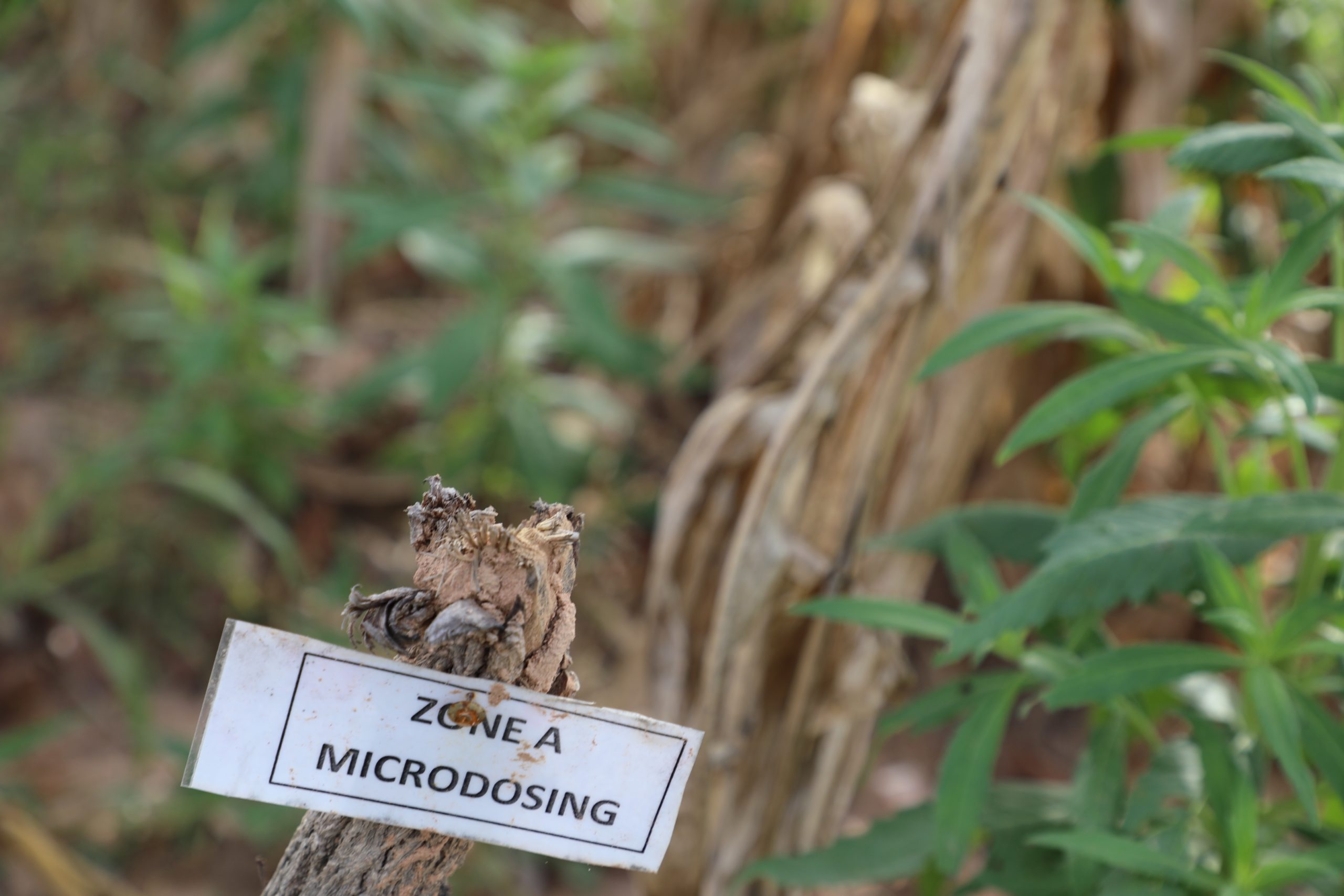
RURAL21 - Research Article
The INTERFACES project backs four regional ventures run by the German Federal Ministry of Education and Research and aimed at promoting sustainable land management in sub-Saharan Africa. Its mission focuses on developing change strategies to boost innovation and implementation processes. Link to article below.
Learn more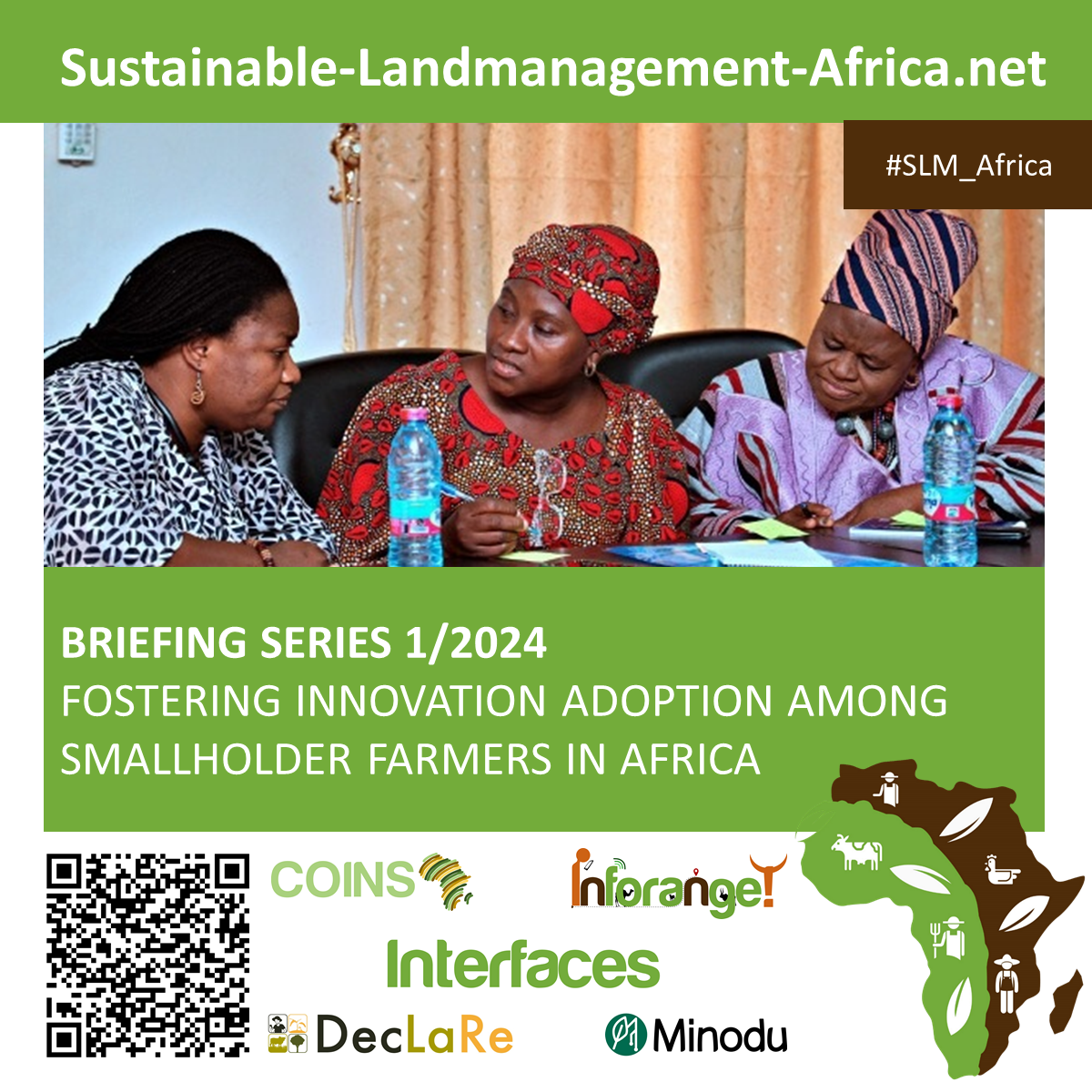
Fostering gender-responsive innovation adoption among smallholder farmers in Africa
Fostering new farming practices and innovation adoption among female and male smallholder farmers, including marginalised groups requires addressing the economic, environmental and socio-cultural dimensions of development and contribute to social justice and gender equity. This is not a self-evident process as some innovations have contributed to adverse environmental or social effects, resulting in low adoption rates and unsuccessful scaling of innovations. In this briefing series we highlight the reasons for low adoption rates among smallholder farmers and how gender-responsive innovation adoption can be fostered.
Learn more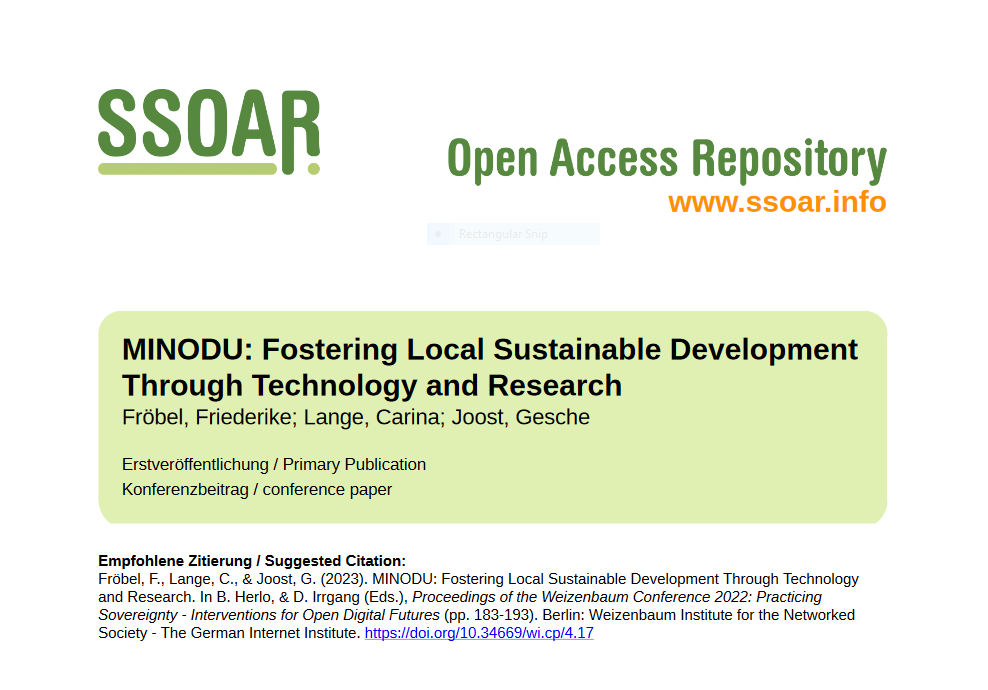
MINODU: Fostering Local Sustainable Development Through Technology and Research
Rapid climate change is exposing subsistence farmers to enormous challenges, especially in Sub-Saharan Africa. Several foreign aid programs have been set up to cope with these issues, many of which have focused on technical solutions. However, there seems to be a large gap between scientific research and the needs of local communities. Besides focusing on new ways to improve the resilience of local food production, there is also an urgent need to adapt available knowledge to the local context. Based on experiences from a project to co-create community networks in Togo in 2020, we aim to empower local stakeholders, including farmers and scientists, to adapt existing knowledge of sustainable crop farming to current practices. New modes of knowledge exchange can be established with the help of participatory design. These methods may help to foster a collective approach to learning that enables people to cope with global challenges on a local level, all while valuing the traditional practices of local farmers and enriching them with scientific knowledge.
Learn more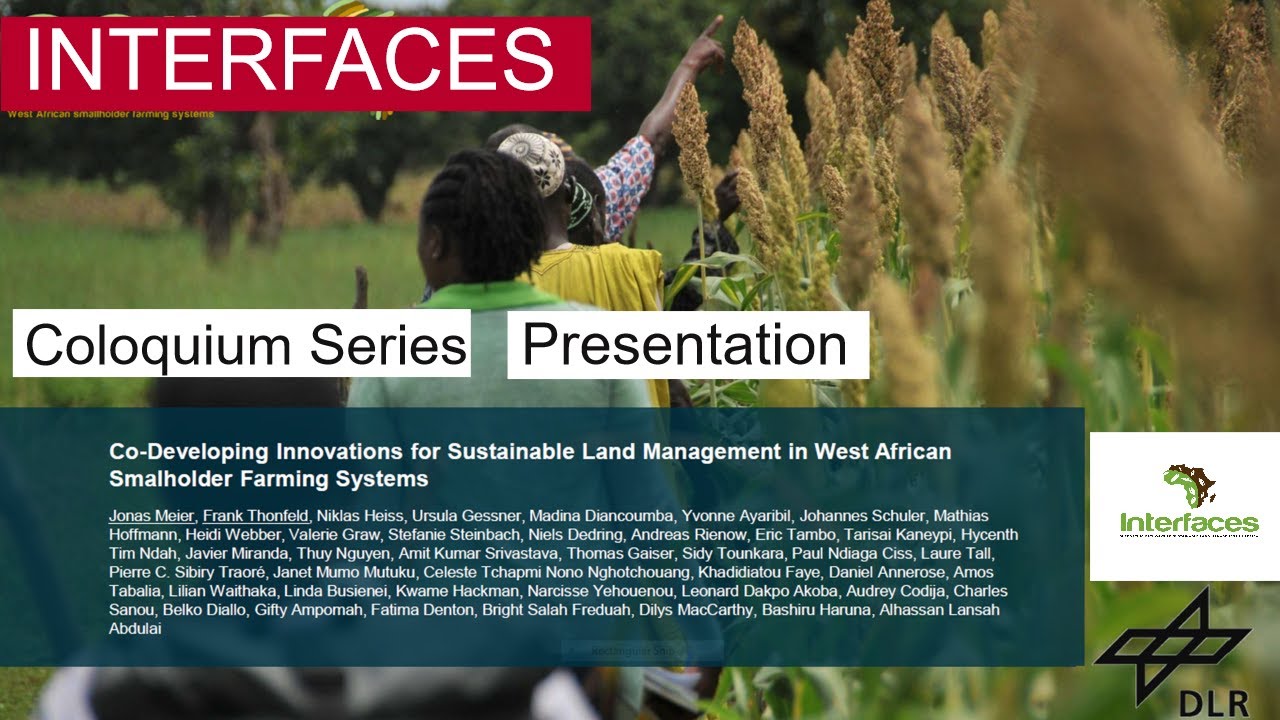
Colloquium series - Dr. Jonas Meier (presentation)
Presentation: Dr. Jonas Meier "Co-Developing Innovations for Sustainable Land Management”
Learn more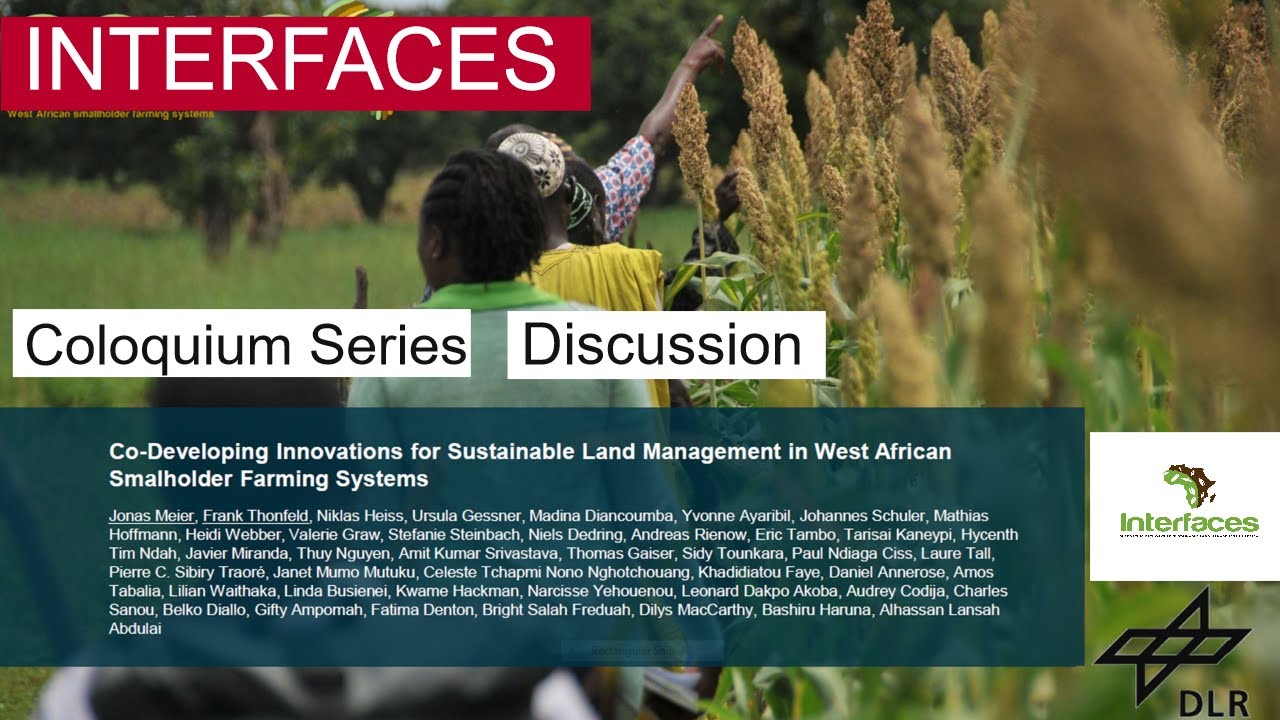
Colloquium Series - Dr. Jonas Meier (discussion)
Discussion: Dr. Jonas Meier "Co-Developing Innovations for Sustainable Land Management”
Learn more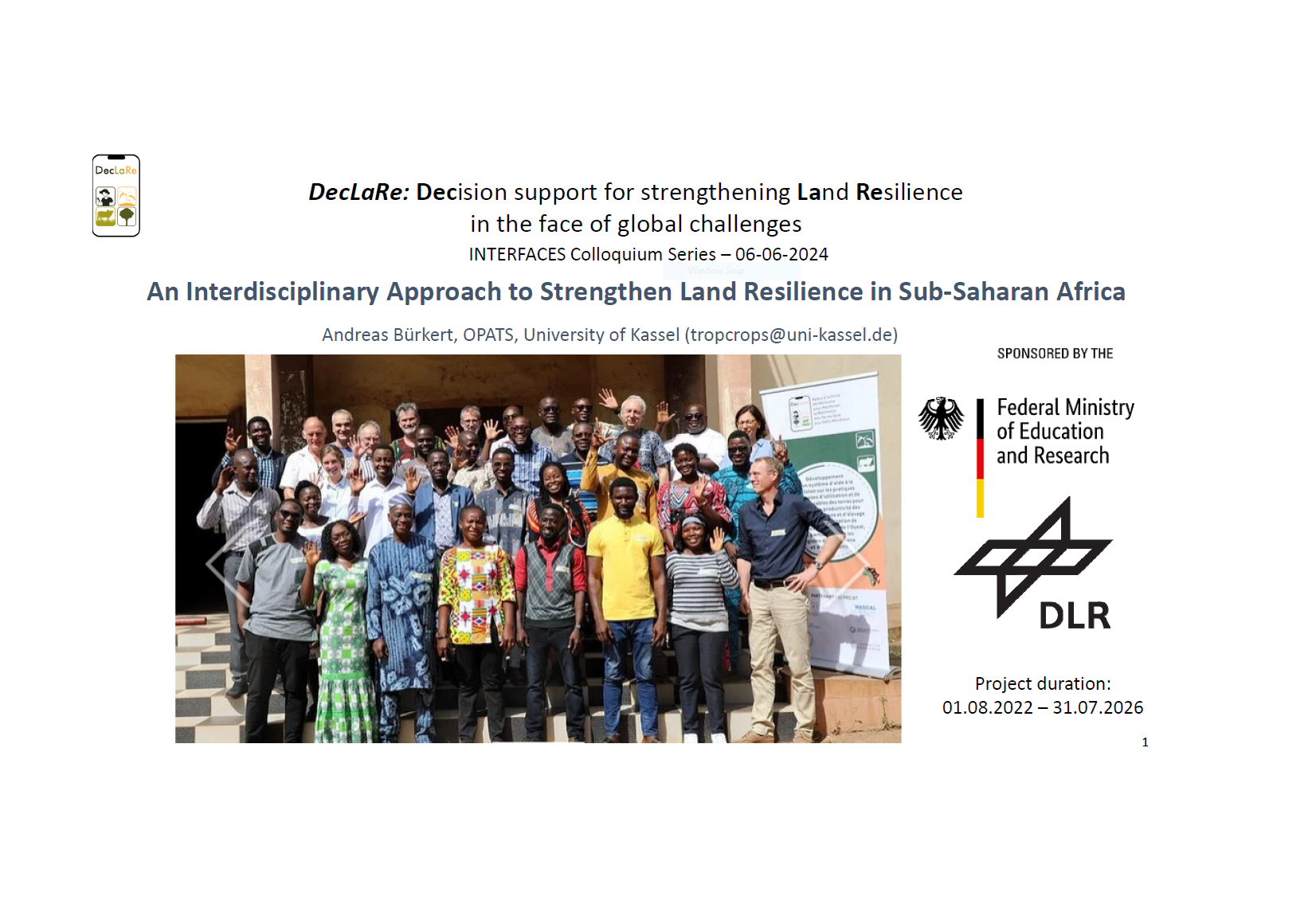
Colloquium Series - Prof. Dr. Andreas Bürkert (discussion)
Discussion: Prof. Dr. Andreas Bürkert "Interdisciplinary Approach to Strengthen Land Resilience in Sub-Saharan Africa”
Learn more
Colloquium Series - Prof. Dr. Andreas Bürkert (presentation)
Presentation: Prof. Dr. Andreas Bürkert "Interdisciplinary Approach to Strengthen Land Resilience in Sub-Saharan Africa”
Learn more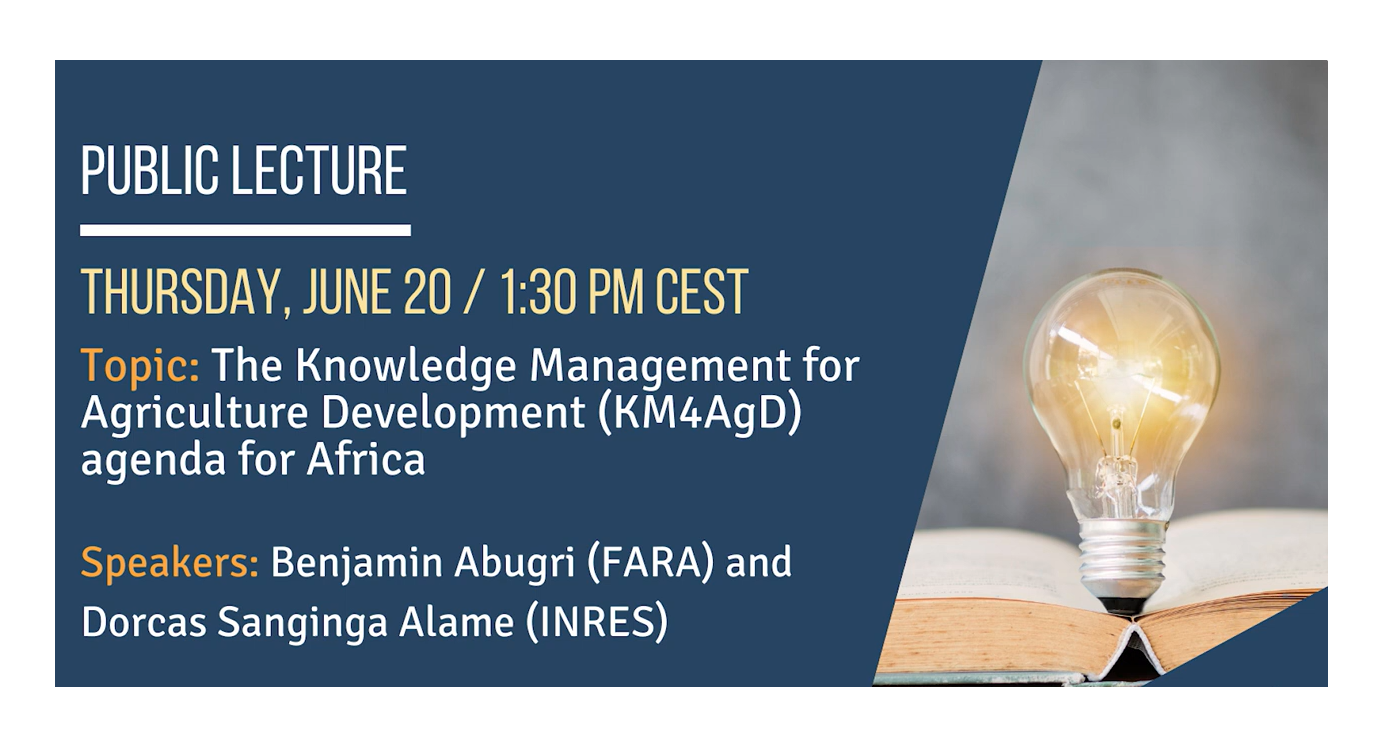
The Knowledge Management for Agriculture Development (KM4AgD) agenda for Africa
Knowledge is at the heart of sustainable development. Today’s societies are characterized by a predominant and still growing share of knowledge work at all levels of institutions. Knowledge is essential because it supports decision-making and evidence-based planning and increases institutional credibility. It is critical for research organizations because research is vital to generating knowledge.
Learn more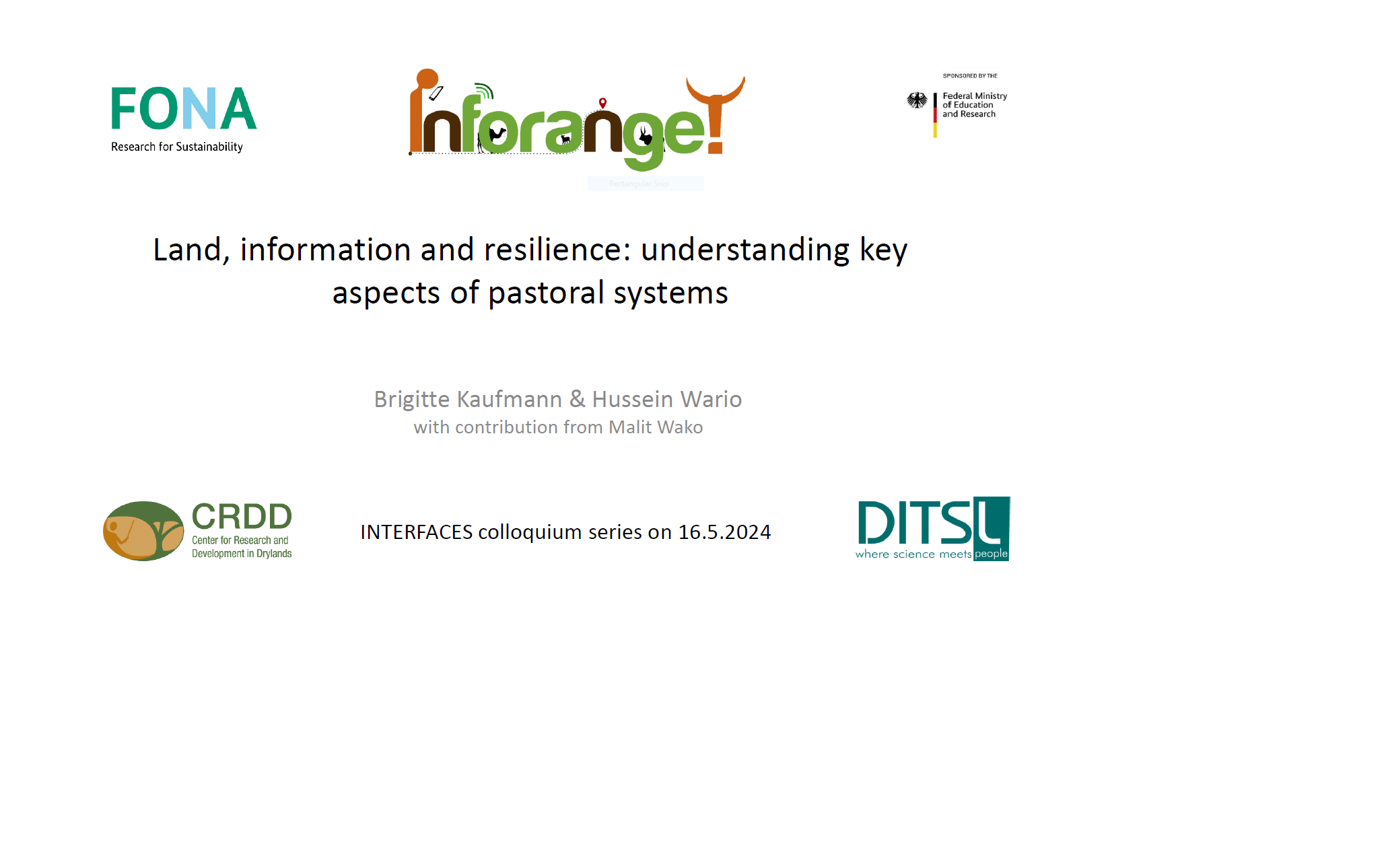
Colloquium Series - Prof. Dr. Brigitte Kaufmann and Dr. Hussein Wario (presentation)
Presentation: Prof. Dr. Brigitte Kaufmann and Dr. Hussein Wario "Sustainable land management in sub‐Saharan Africa: Improving livelihoods through local research”
Learn more
Colloquium Series - Prof. Dr. Brigitte Kaufmann and Dr. Hussein Wario (discussion)
Presentation: Prof. Dr. Brigitte Kaufmann and Dr. Hussein Wario "Sustainable land management in sub‐Saharan Africa: Improving livelihoods through local research”
Learn more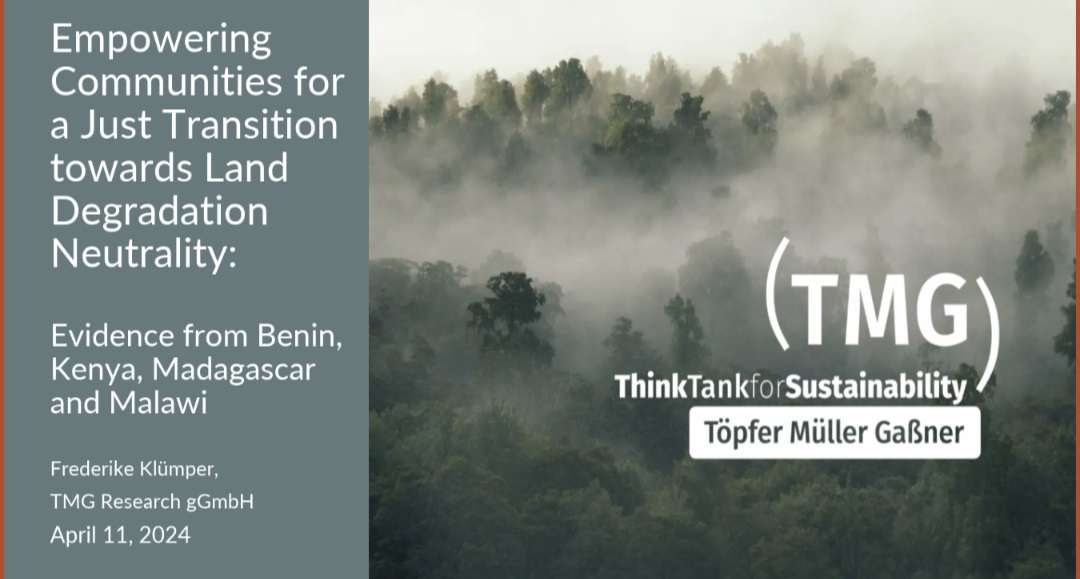
Colloquium Series - Dr. Frederike Klümper (discussion)
Discussion: Dr. Frederike Klümper "Empowering communities for a just transition towards land degradation neutrality: evidence from Benin, Kenya, Madagascar and Malawi"
Learn more
Colloquium Series - Dr. Frederike Klümper (presentation)
Presentation: Dr. Frederike Klümper "Empowering communities for a just transition towards land degradation neutrality: evidence from Benin, Kenya, Madagascar and Malawi"
Learn more
Dr. Colin Stanley on InfoRange project
Dr. Colin Stanley explains about the InfoRange project during an interview on Namibia Connect.
Learn more
Colloquium Series - Dr. Till Below (discussion)
Discussion: Dr. Till Below "Towards climate resilient agri‐food systems in Africa: Providing farmers with climate data for informed decision-making”
Learn more
Colloquium Series - Dr. Till Below (presentation)
Presentation: Dr. Till Below "Towards climate resilient agri‐food systems in Africa: Providing farmers with climate data for informed decision-making”
Learn more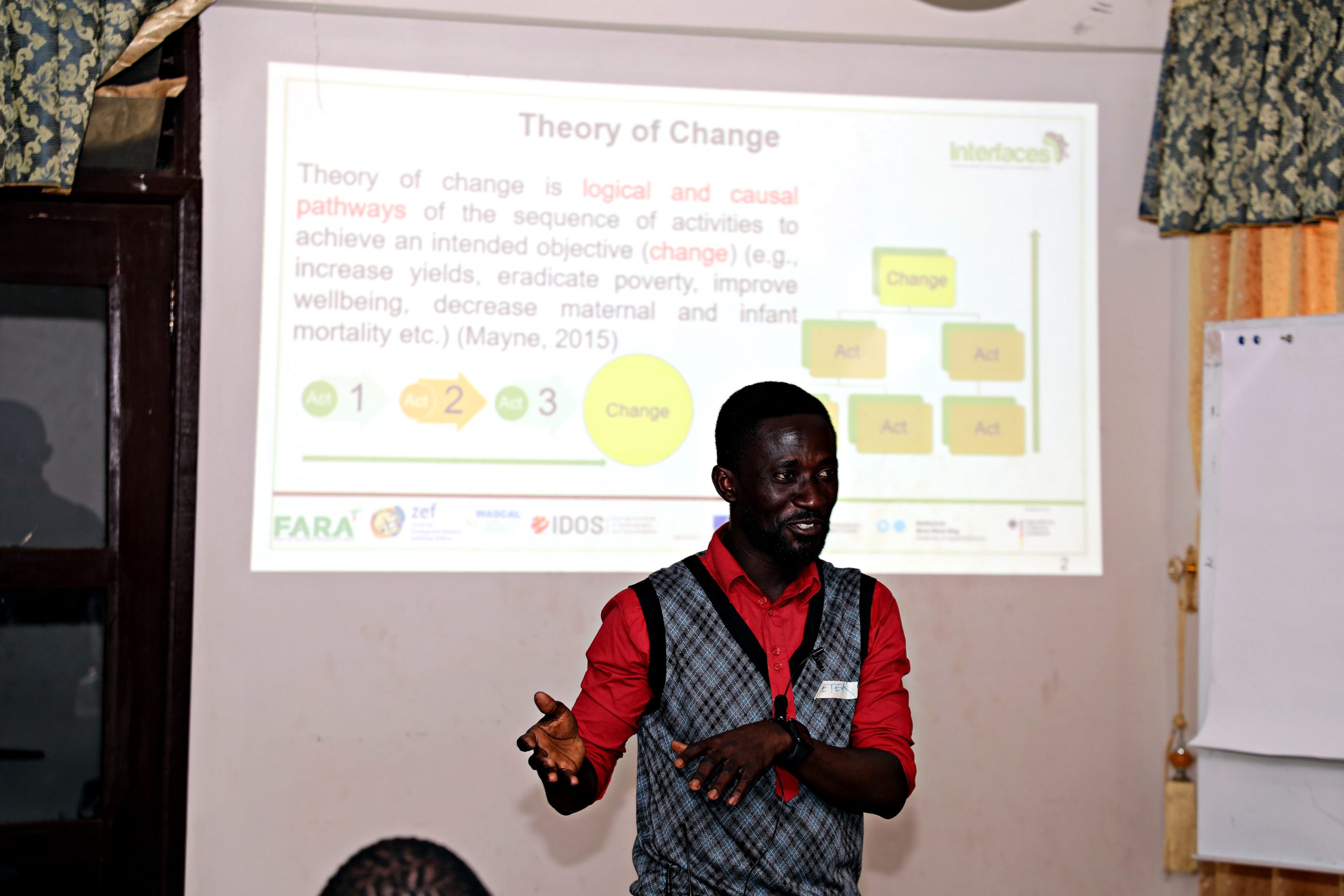
Working with Theories of Change: The INTERFACES Approach
Visual Report and Documentary of INTERFACES: COINS & DecLaRe Workshop in Tamale, Ghana organized and facilitated by INTERFACES Implementers: FARA, WASCAL, UBIDS, ZEF, IDOS & INRES
Learn more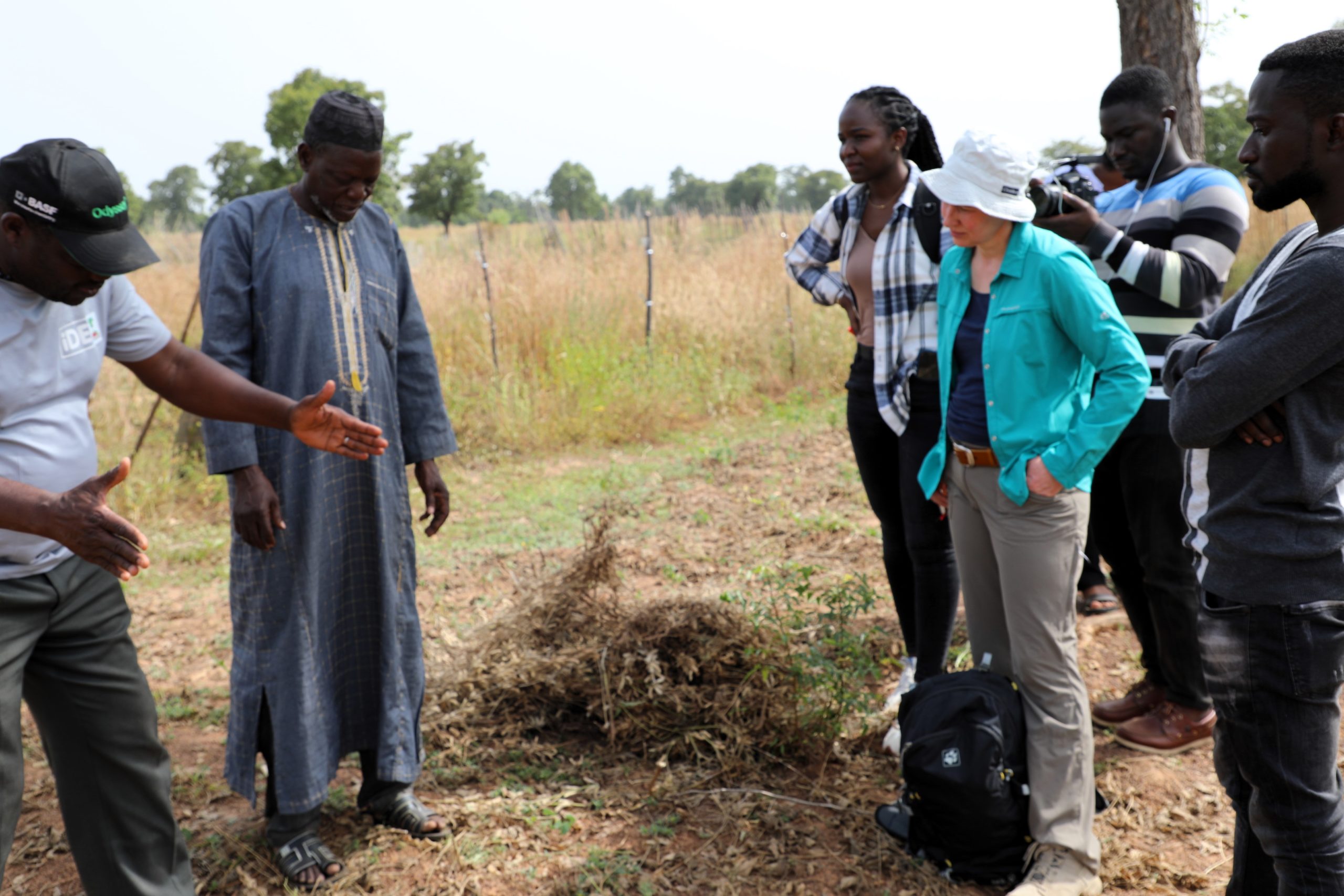
Farmer Mahama Yakubu shares his experience practicing ISFM in the Tolon District, Ghana
Visual Report and Documentary of INTERFACES: COINS & DecLaRe Workshop Tolon District Field Visit in Tamale, Ghana organized and facilitated by INTERFACES Implementers: FARA, WASCAL, UBIDS, ZEF, IDOS & INRES
Learn more
Colloquium Series - Juliane Wiesenhütter and Nina Bisom (discussion)
Discussion: Juliane Wiesenhütter and Nina Bisom "United for land - Partners, networks and contributions from a German perspective"
Learn more
Colloquium Series - Juliane Wiesenhütter and Nina Bisom (presentation)
Presentation: Juliane Wiesenhütter and Nina Bisom "United for land - Partners, networks and contributions from a German perspective"
Learn more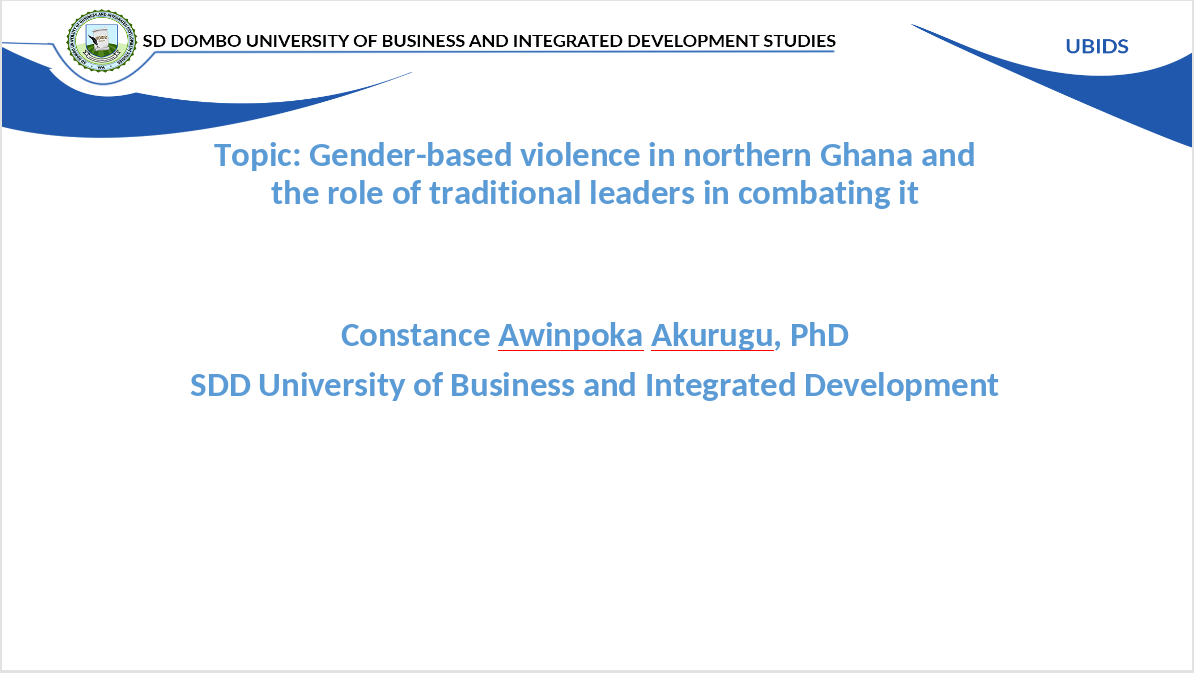
Colloquium Series - Dr. Constance Awinpoka Akurugu (discussion)
Discussion: Dr. Constance Awinpoka Akurugu “Gender-based violence in northern Ghana and the role of traditional leaders in combating it”
Learn more
Colloquium Series - Dr. Constance Awinpoka Akurugu (presentation)
Presentation: Dr. Constance Awinpoka Akurugu “Gender-based violence in northern Ghana and the role of traditional leaders in combating it”
Learn more
Colloquium Series - Dr. Heike Baumüller (discussion)
Discussion: Dr. Heike Baumüller "Digitalization in Agriculture: Potentials and Pitfalls"
Learn more
Colloquium Series - Dr. Heike Baumüller (presentation)
Presentation: Dr. Heike Baumüller "Digitalization in Agriculture: Potentials and Pitfalls"
Learn more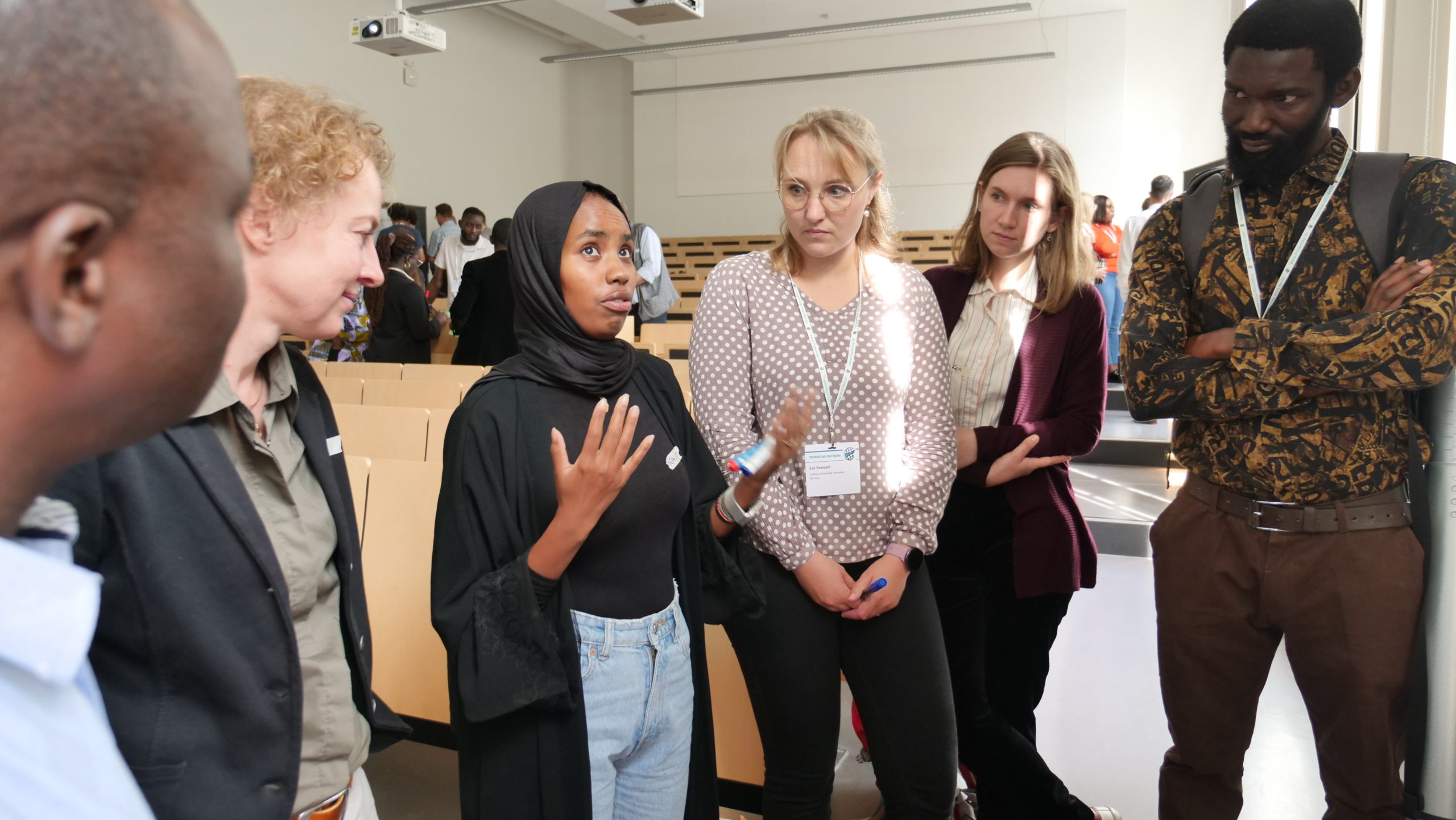
Impression Video Tropentag 2023
The BMBF funded programme INTERFACES and the four regional projects, COINS, DecLaRe, InfoRange and Minodu came together at the Tropentag Conference from the 20th to 22nd of September in Berlin. Highlight was the pre-conference workshop organised by INTERFACES.
Learn more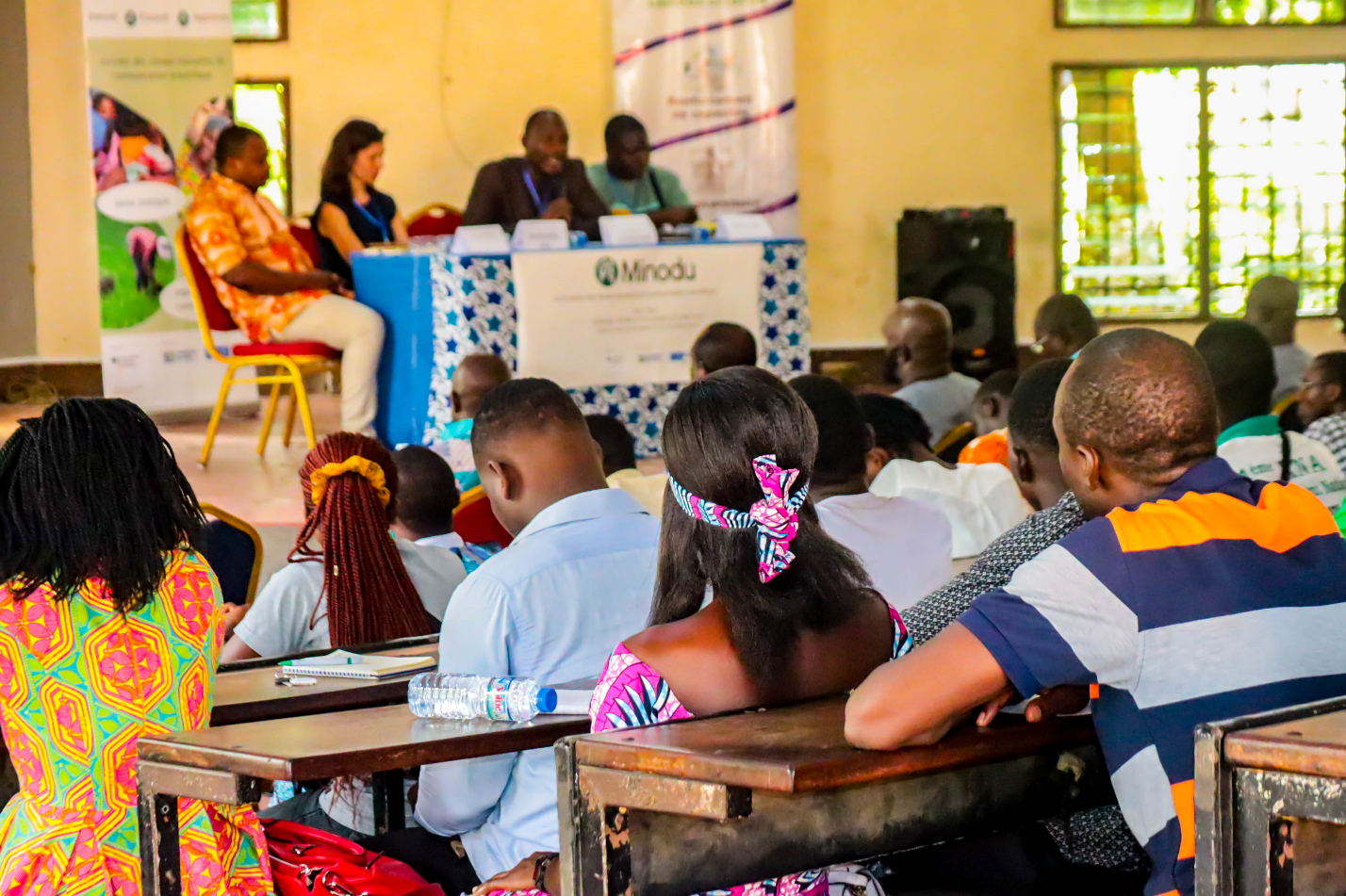
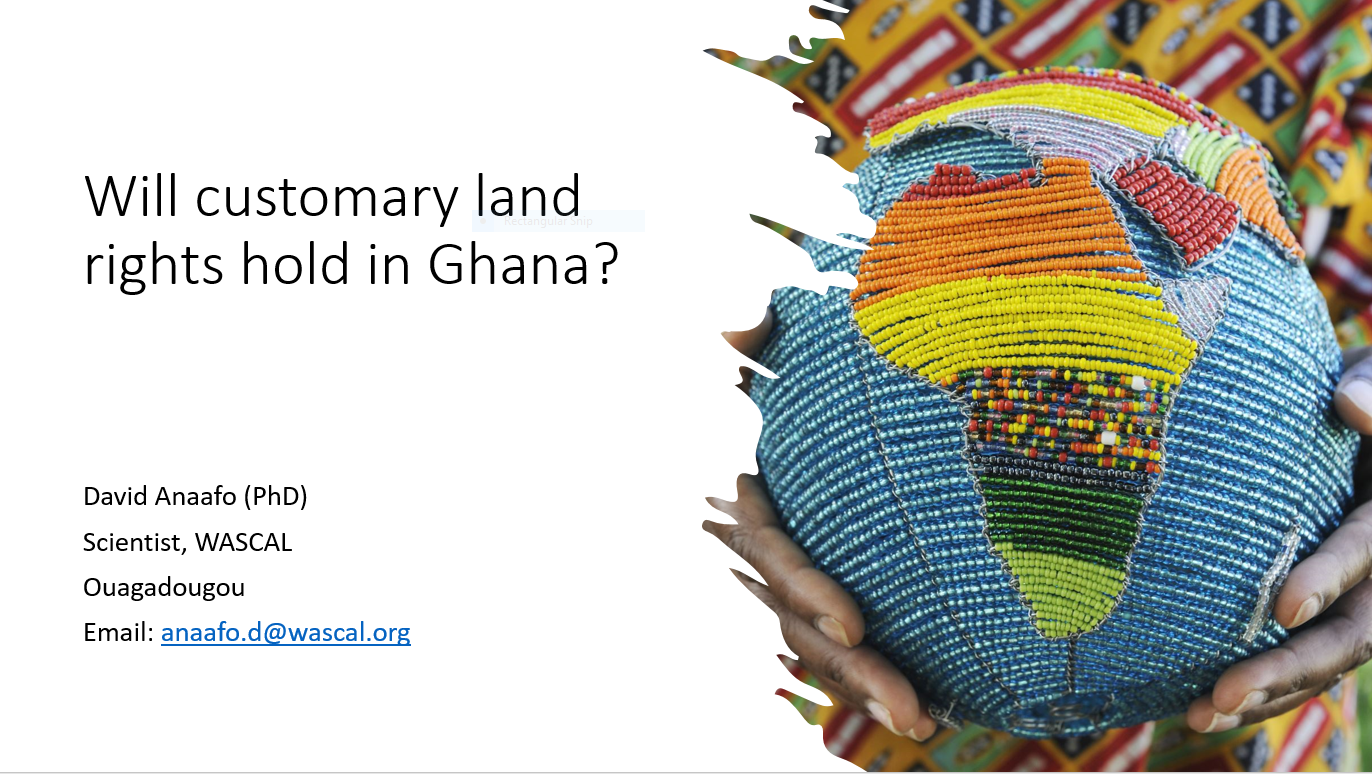
Colloquium Series - Dr. David Anaafo (discussion)
Discussion: Dr. David Anaafo "Will customary land rights hold in Ghana"
Learn more
Colloquium Series - Dr. David Anaafo (presentation)
Presentation: Dr. David Anaafo "Will customary land rights hold in Ghana"
Learn more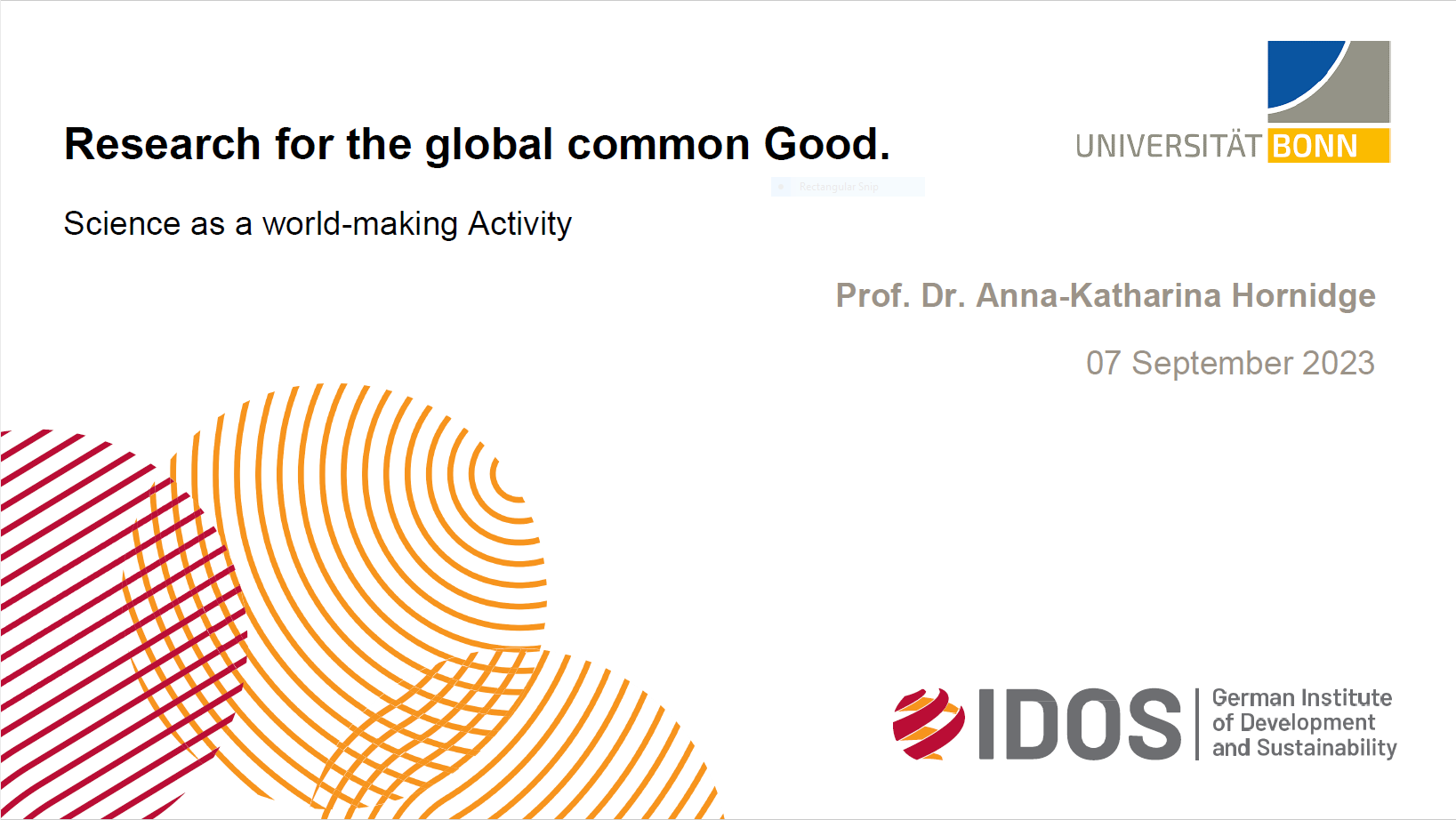
Colloquium Series - Prof. Hornidge (discussion)
Discussion: Prof. Dr. Anna‐Katharina Hornidge "Research for the global common Good. Science as a World-making Activity"
Learn more
Colloquium Series - Prof. Hornidge (presentation)
Presentation: Prof. Dr. Anna‐Katharina Hornidge "Research for the global common Good. Science as a World-making Activity"
Learn more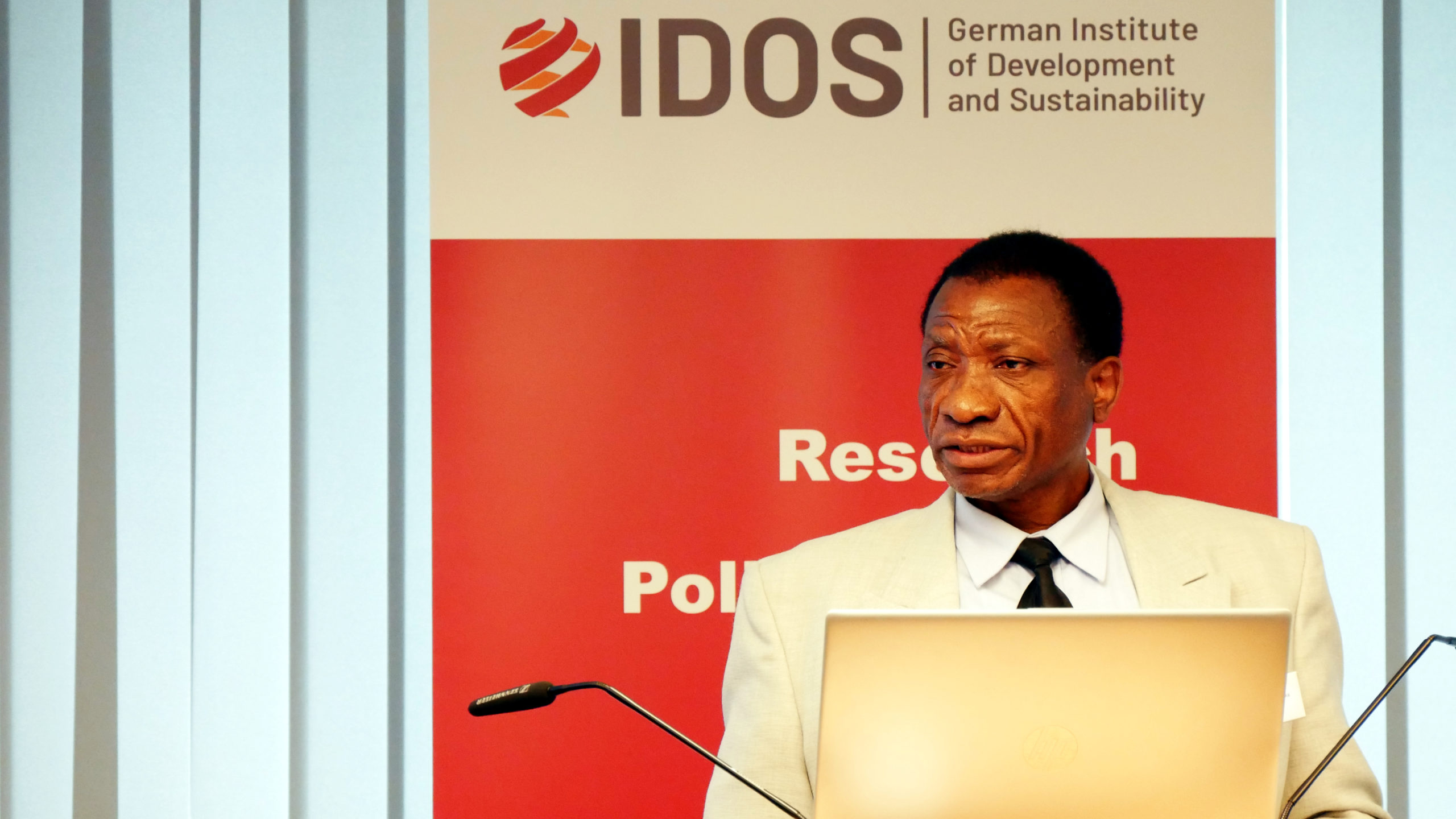
Keynote with Johns Kharika (UNCCD)
This video was taken during the first Status Seminar held in hybrid form (first day only) and online 26-28 April 2023 at IDOS in Bonn.
Learn more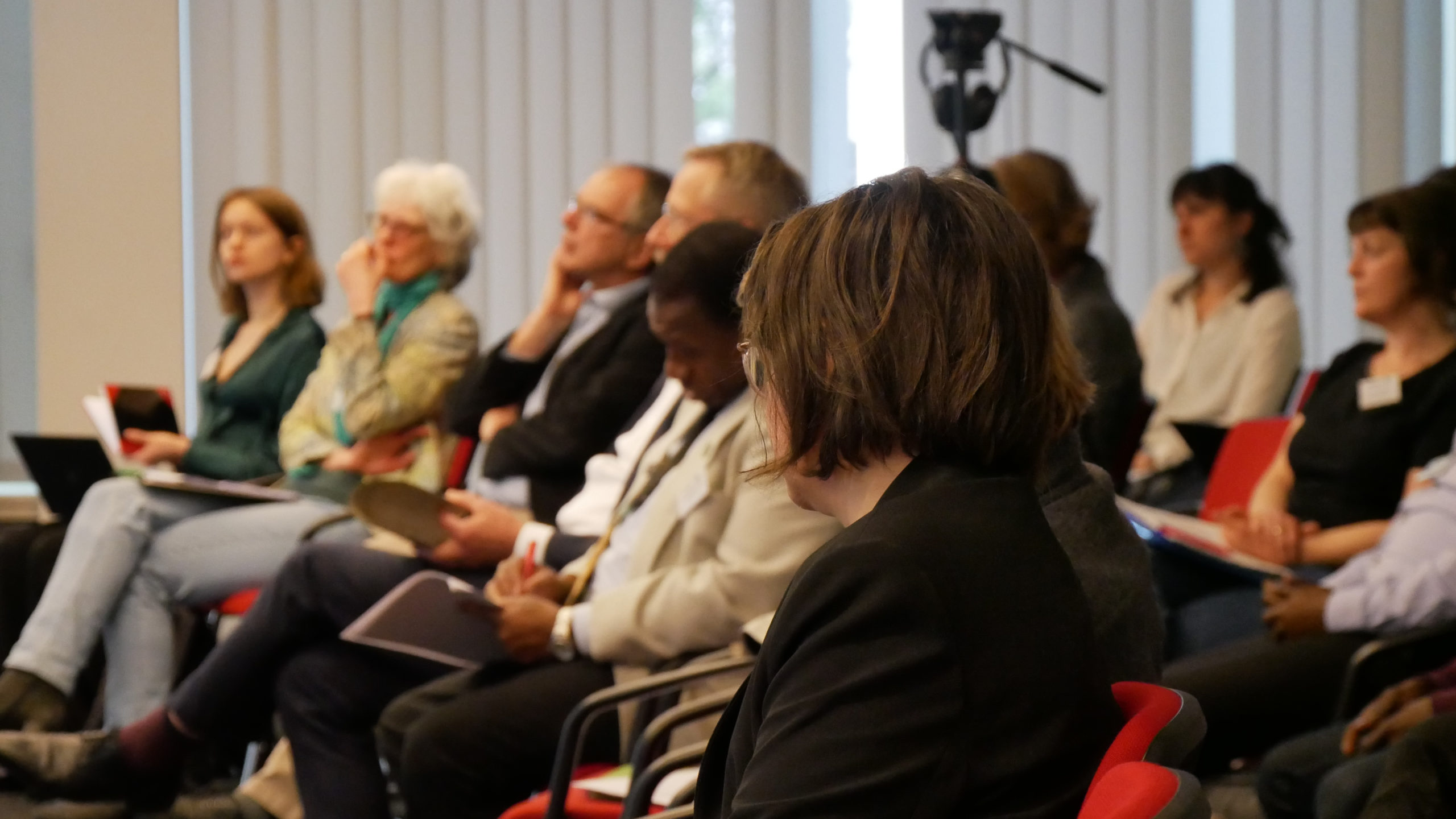
Impression Video First Status Seminar
The German Federal Ministry for Education and Research (BMBF) funds transdisciplinary research on sustainable land management in order to improve livelihoods in sub-Saharan Africa.
Learn more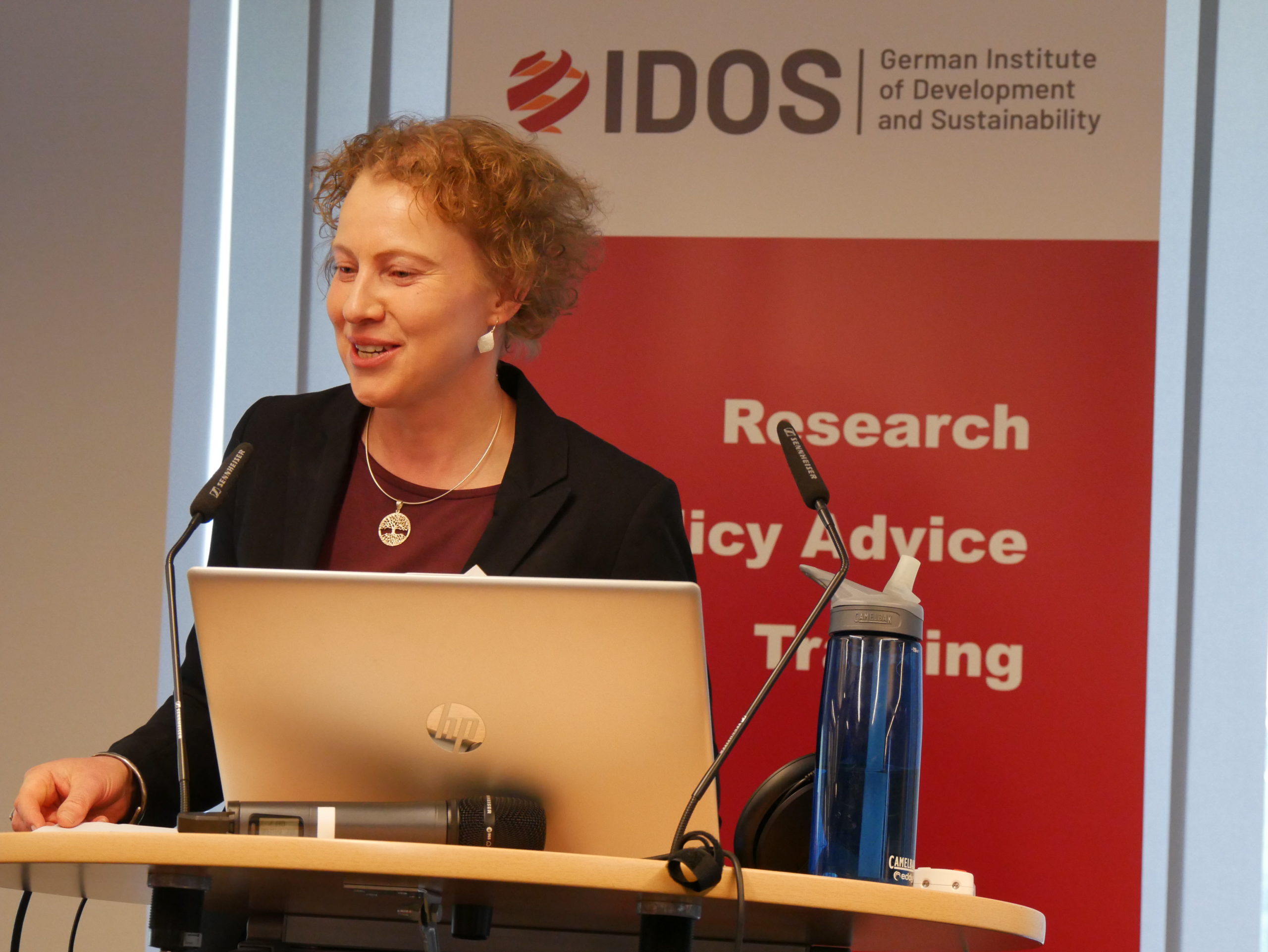
Insights into the research project INTERFACES
In the video, the project leader Tina Beuchelt presents the project, which explores pathways to support sustainable land management in Africa.
Learn more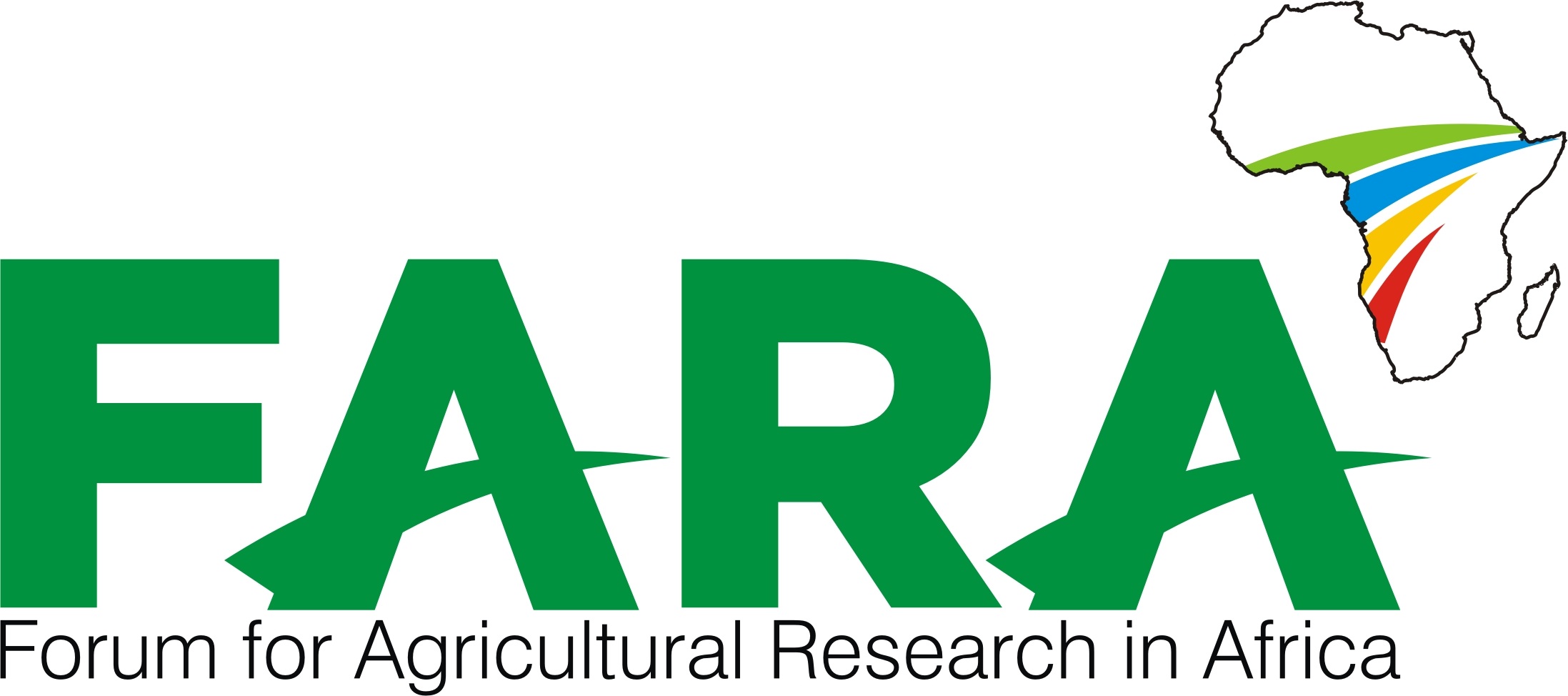
Science Communication and Knowledge Management
The forum encompasses all African and non-African stakeholders committed to enhancing Africa’s agricultural productivity, competitiveness, and markets to help achieve the national, regional, continental and global SDGs for poverty and hunger reduction, and environmental sustainability. A large part of knowledge management in INTERFACES will be based on FARA’s proven methodologies and platforms and will systematically merge the regional projects’ findings with other processes and stakeholders involved in sustainable land management in Sub-Sahara Africa. Press Releases
Learn more